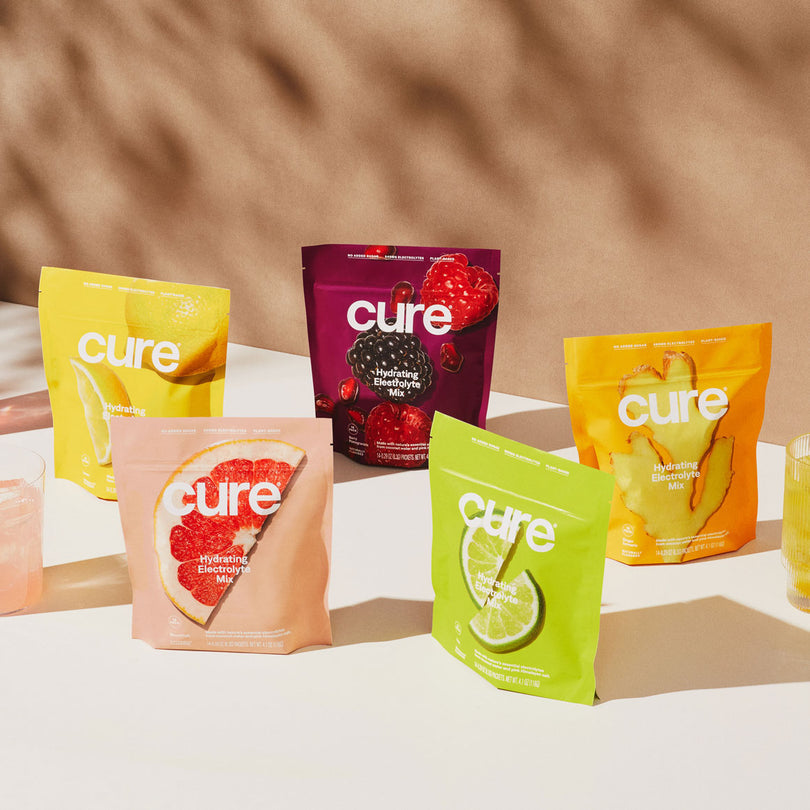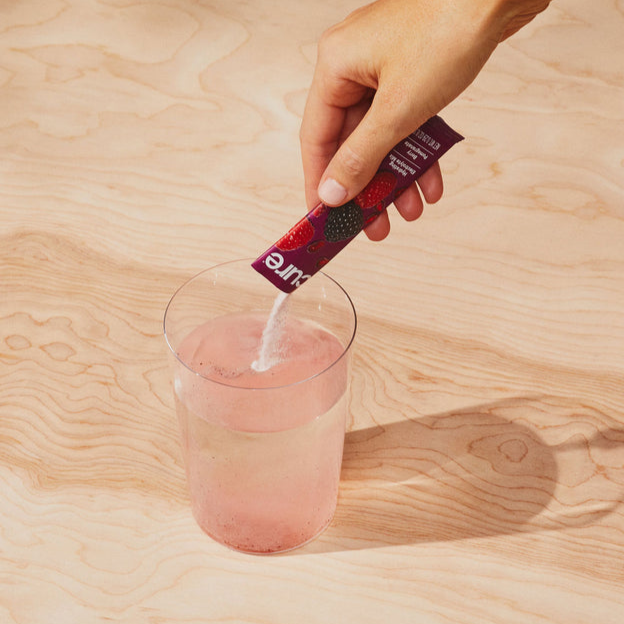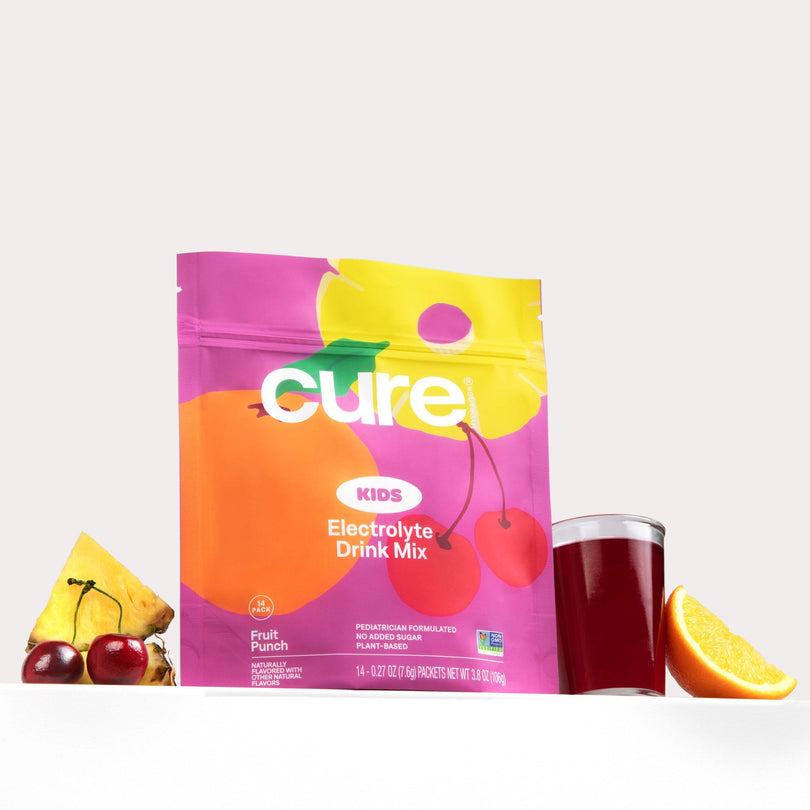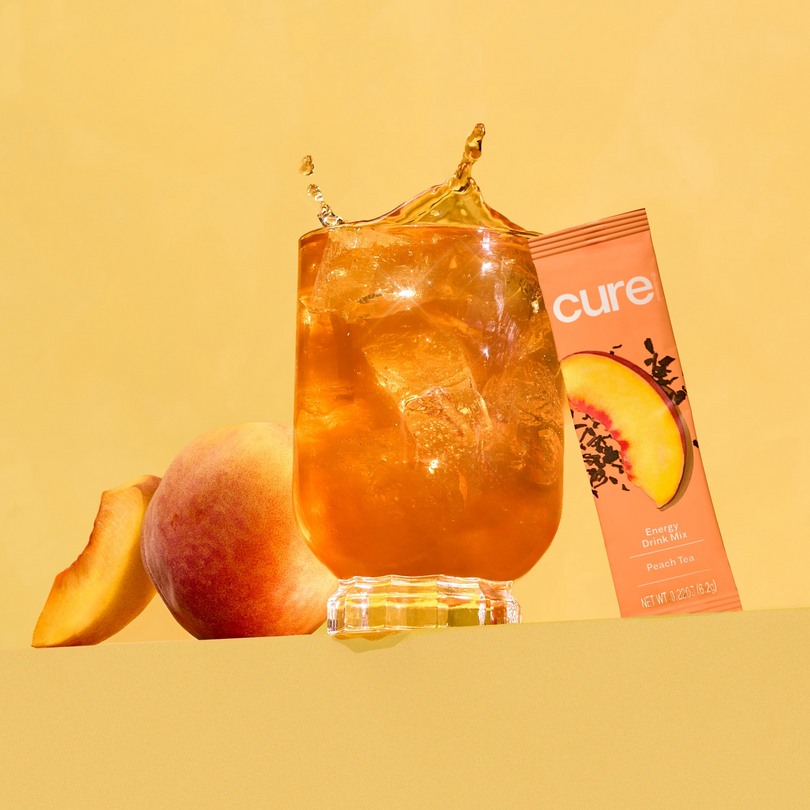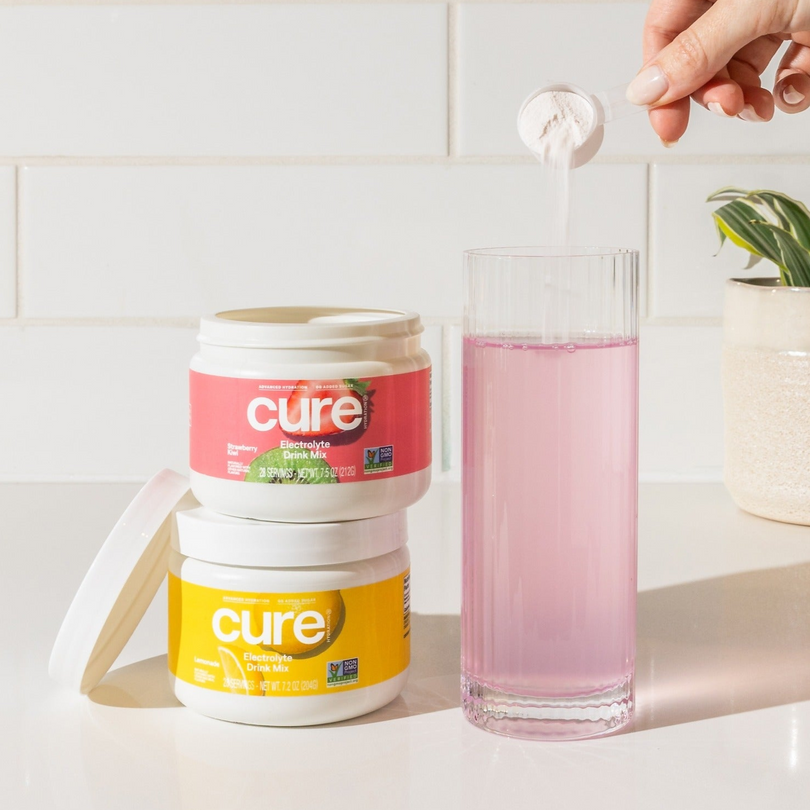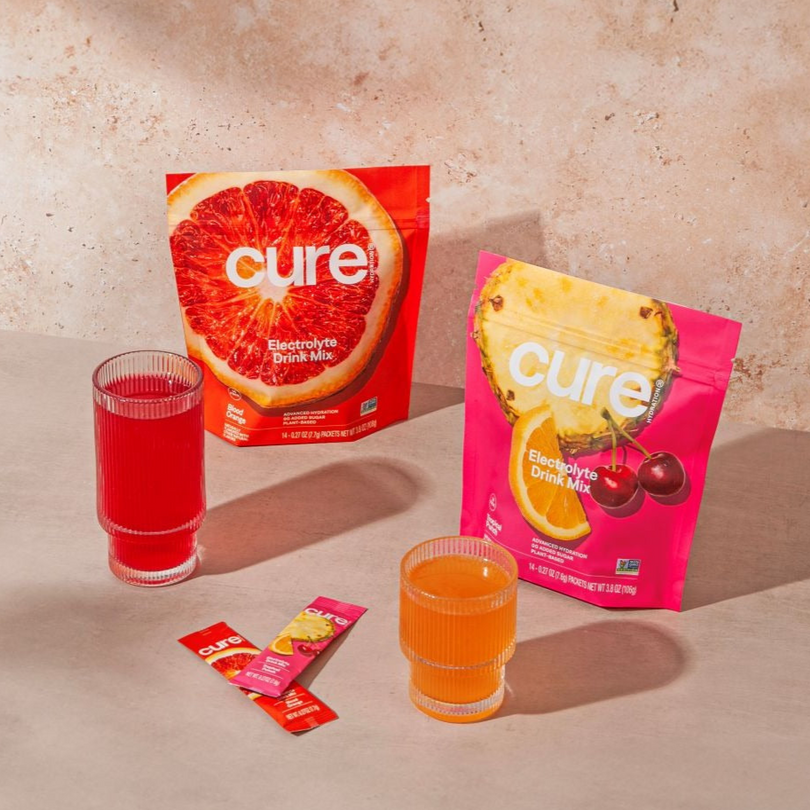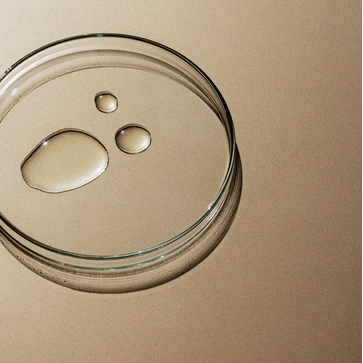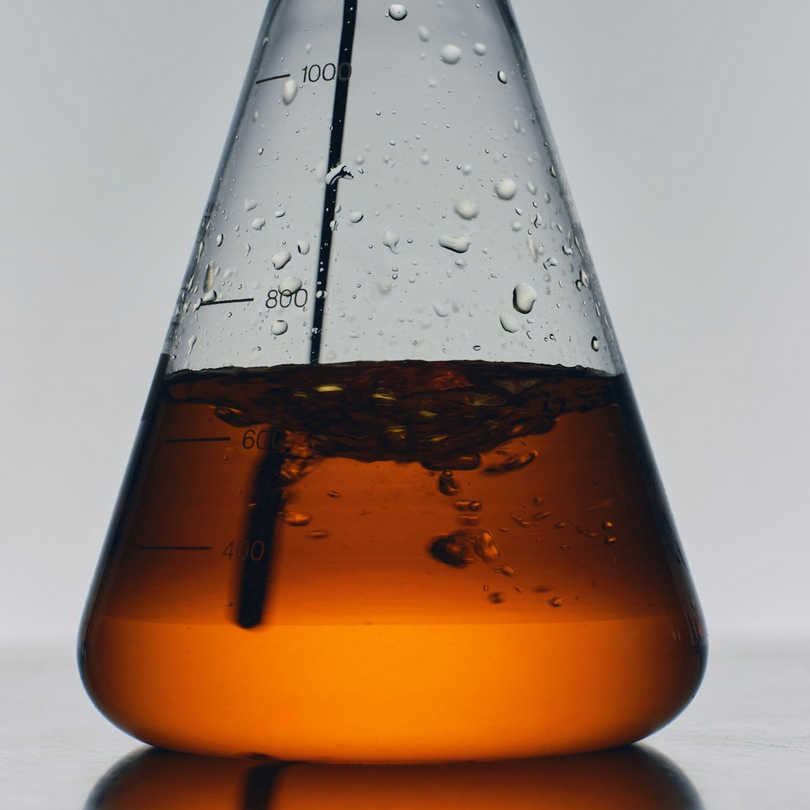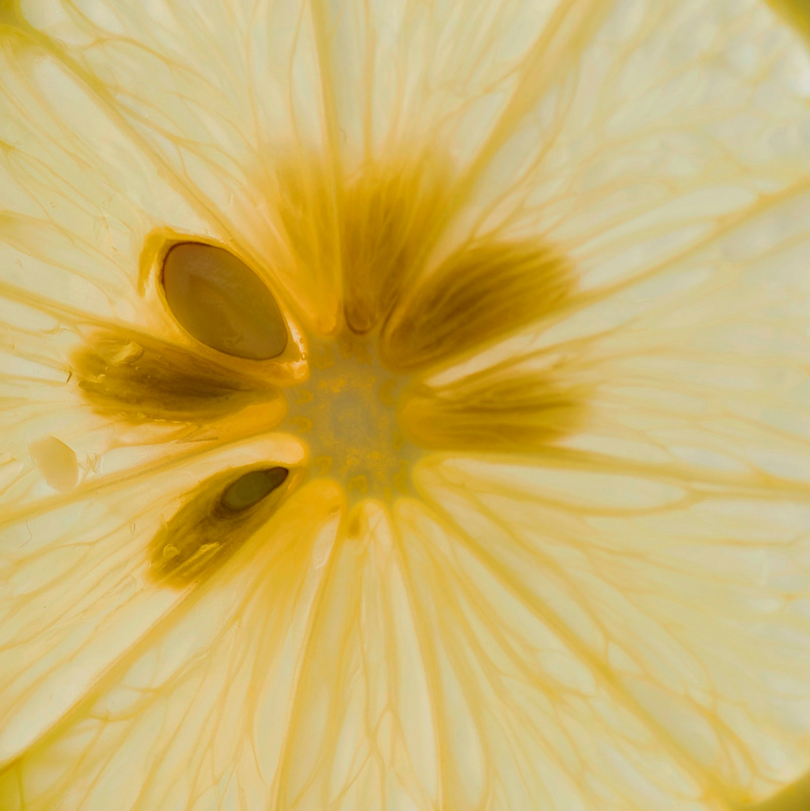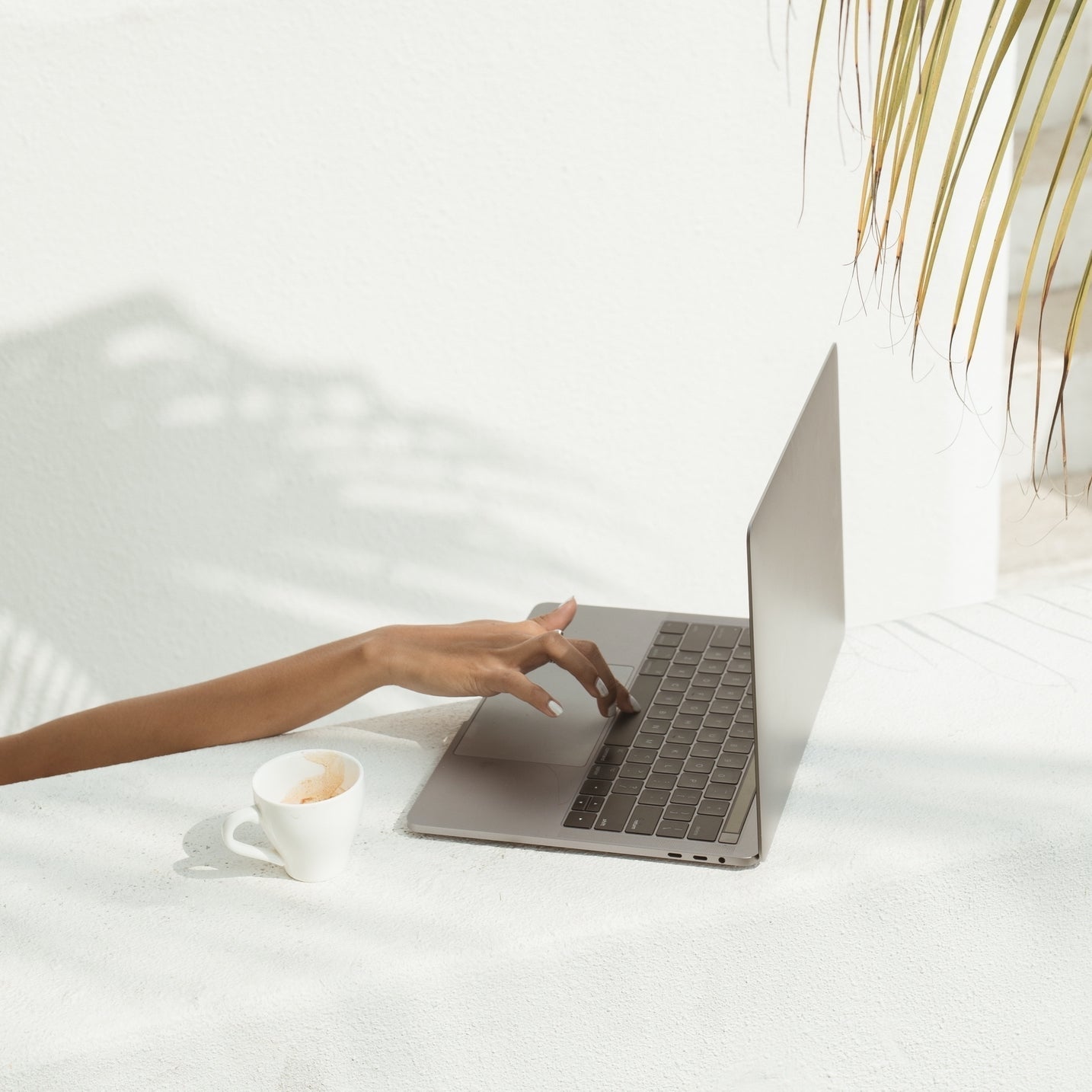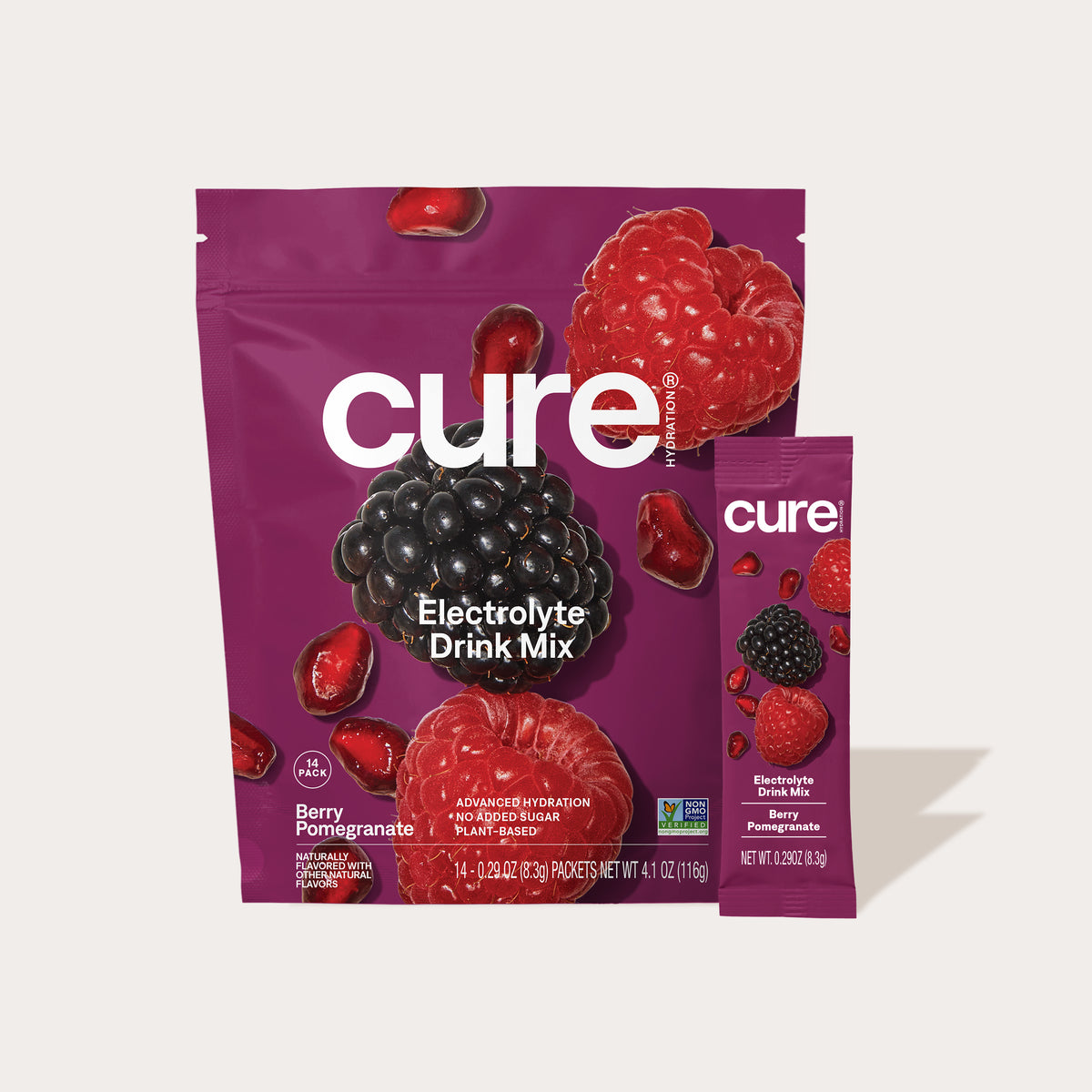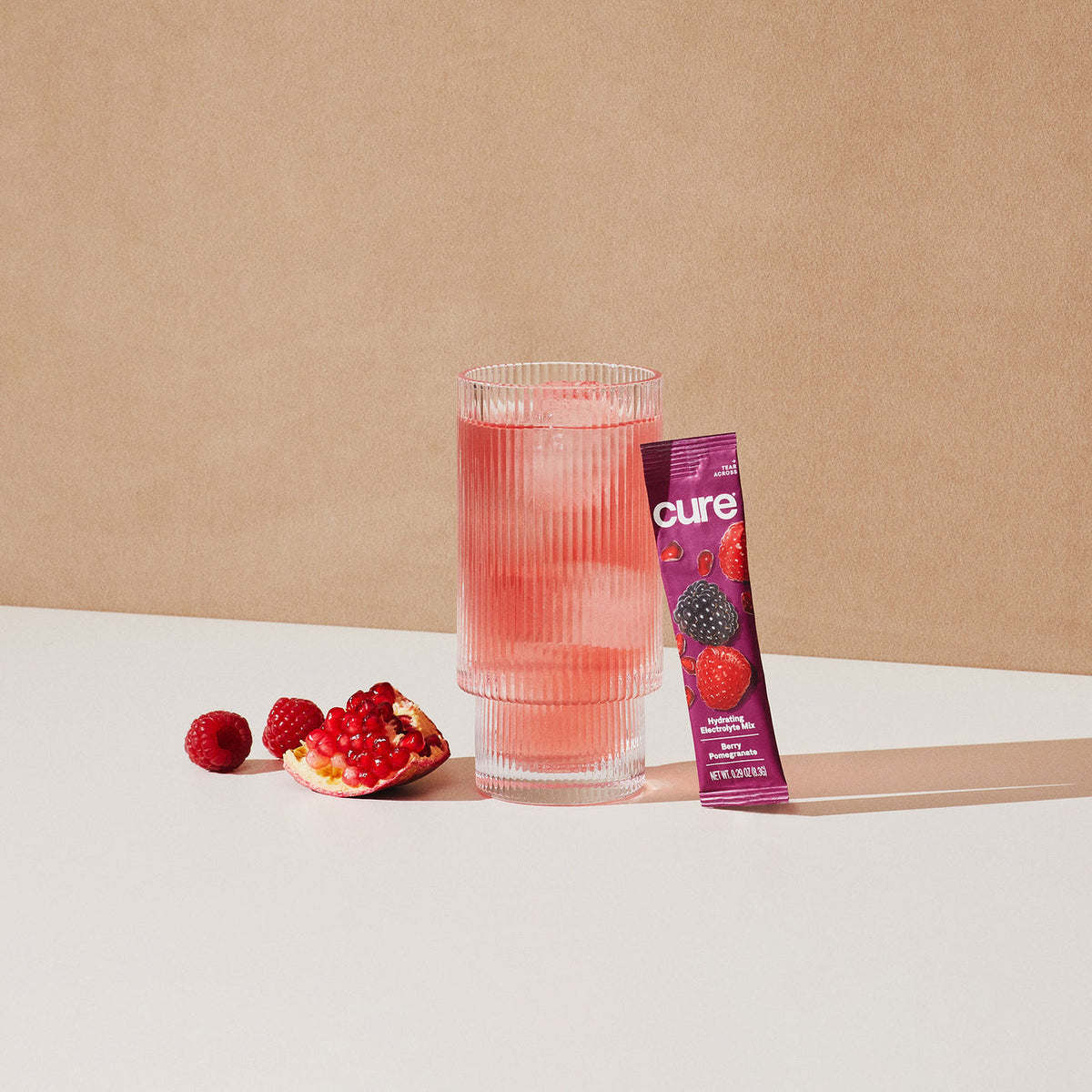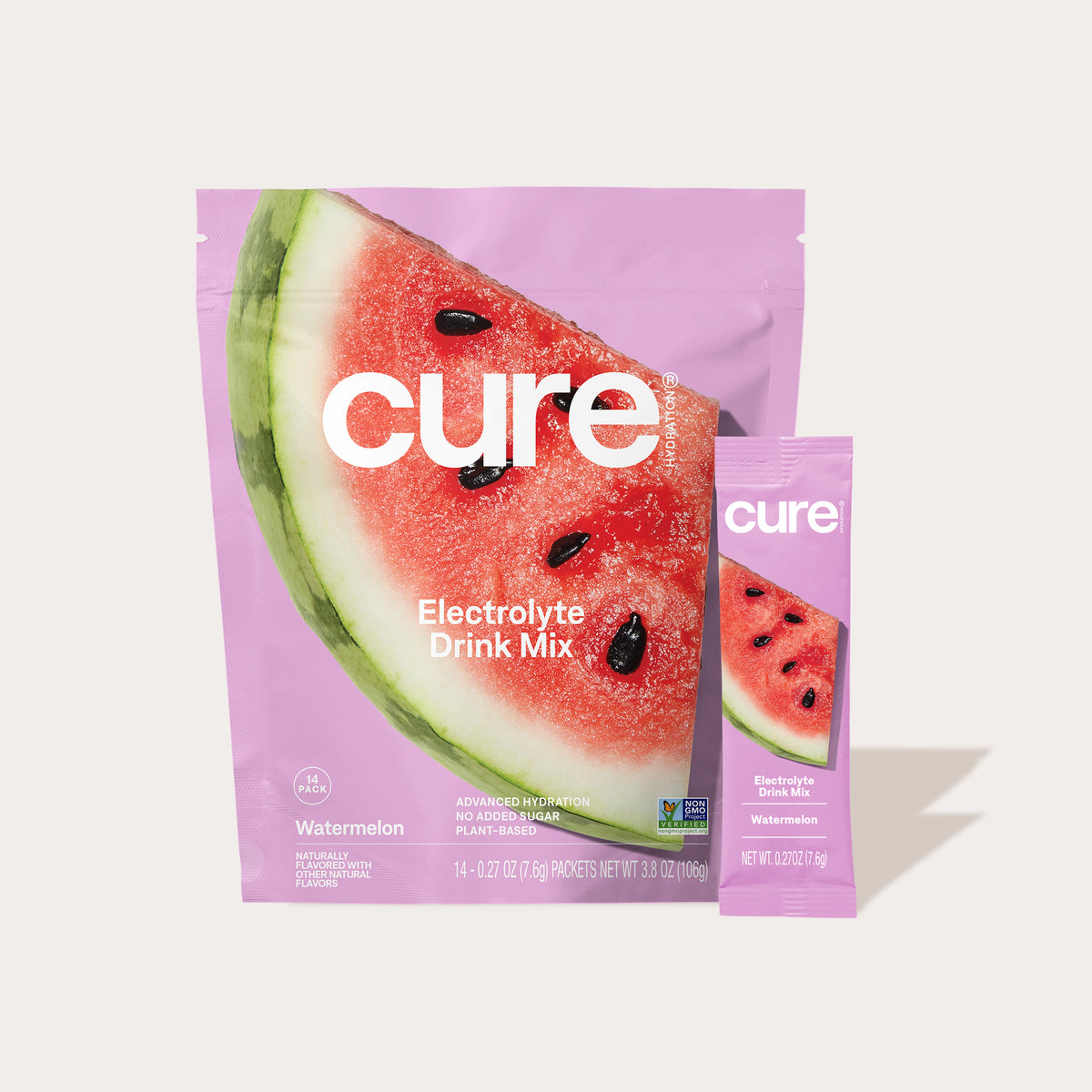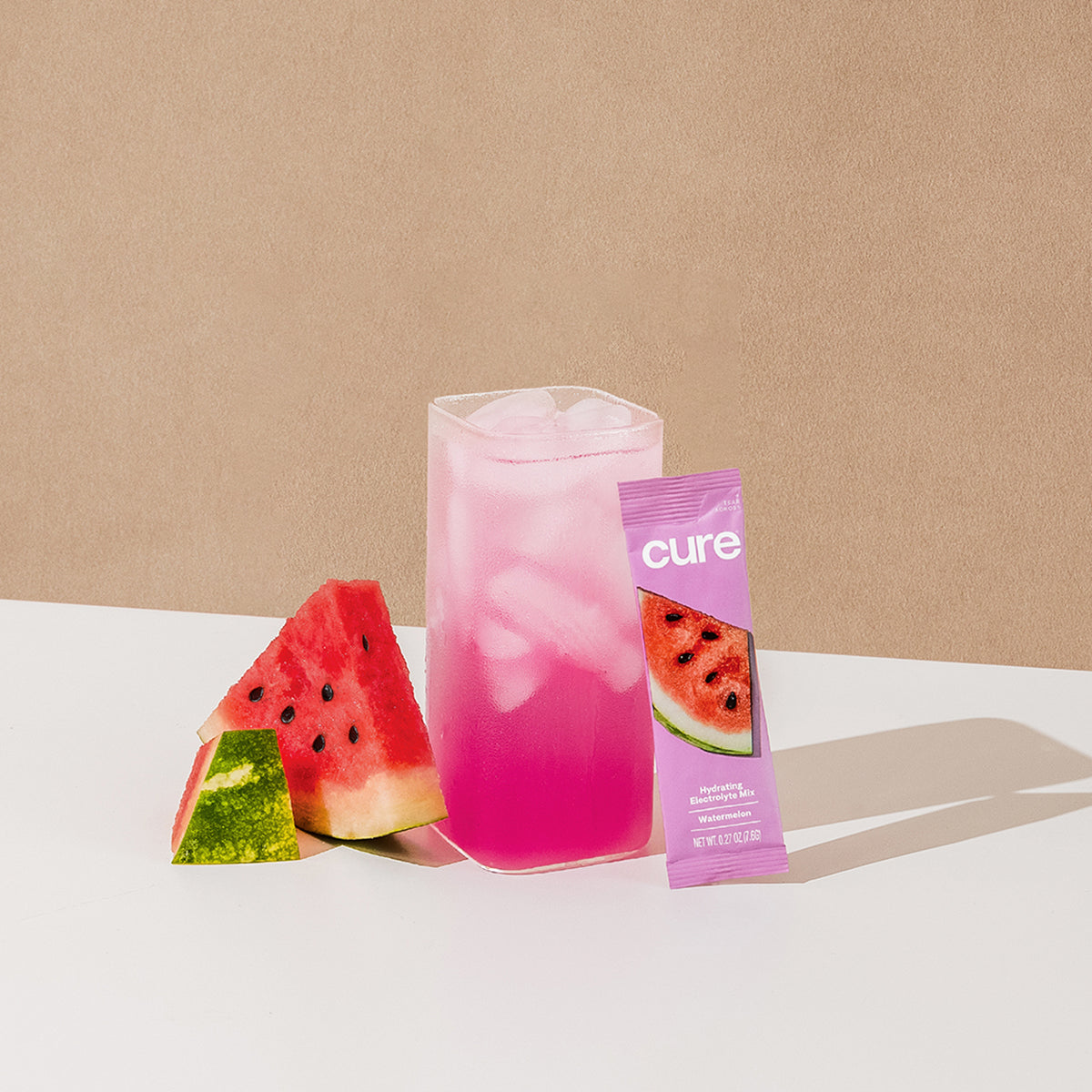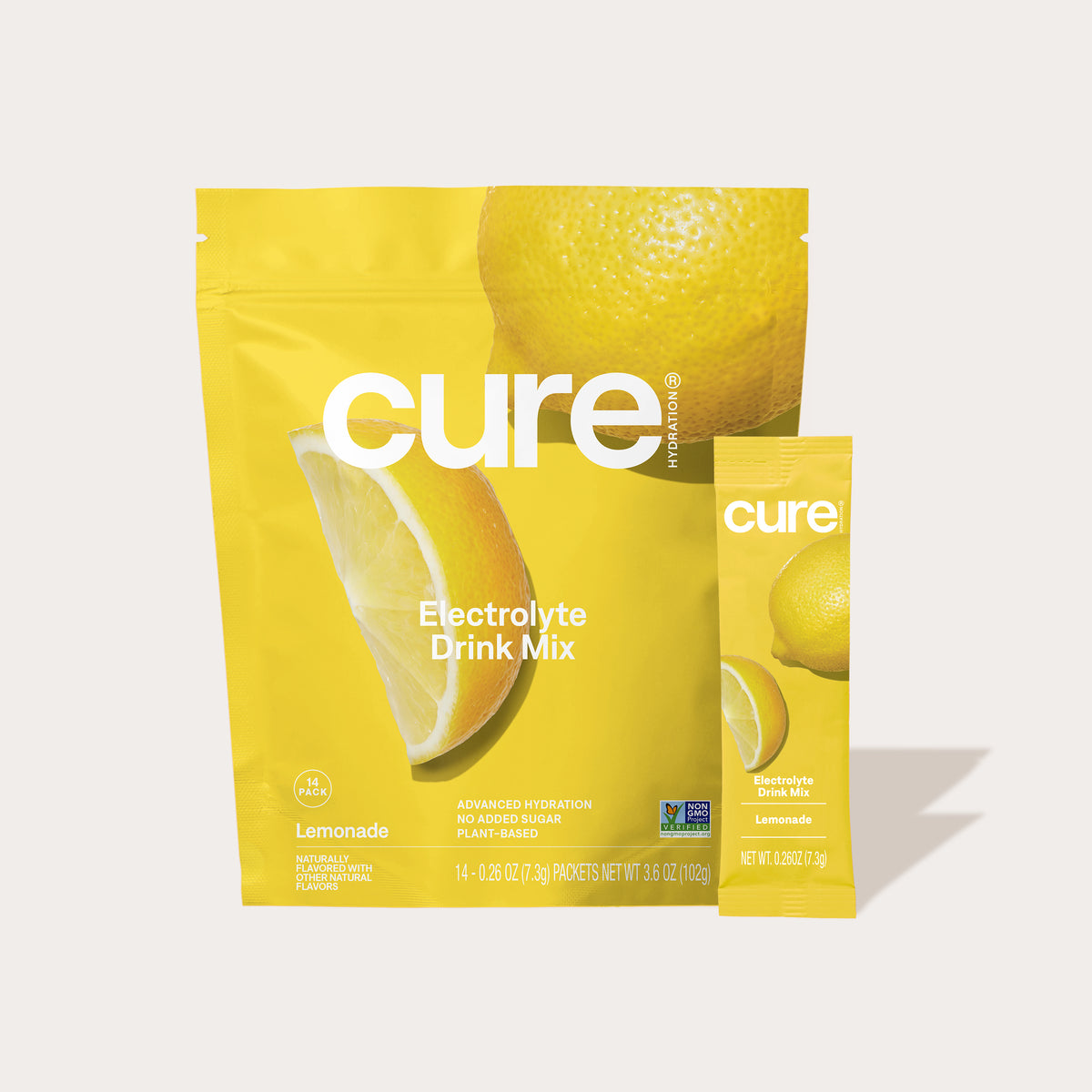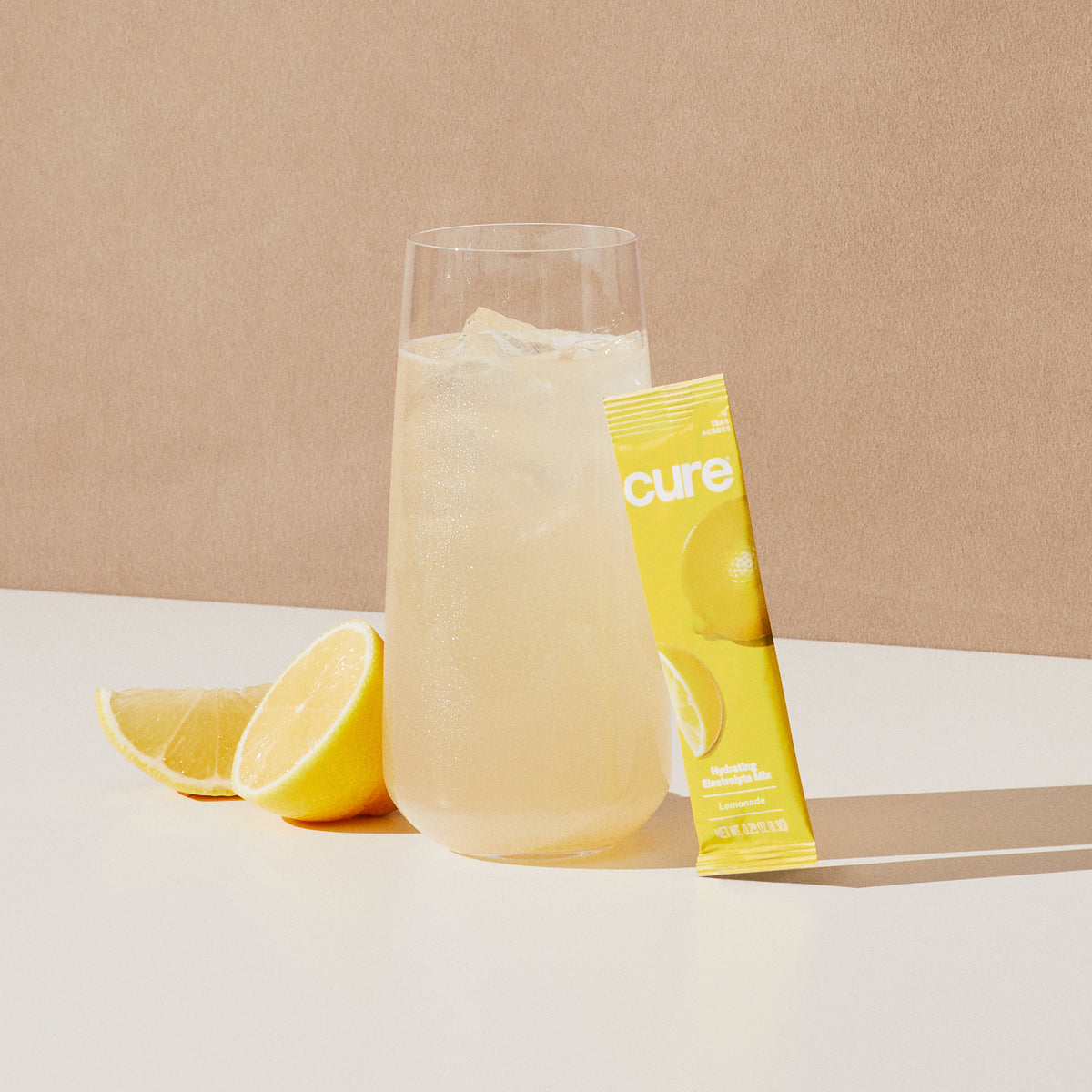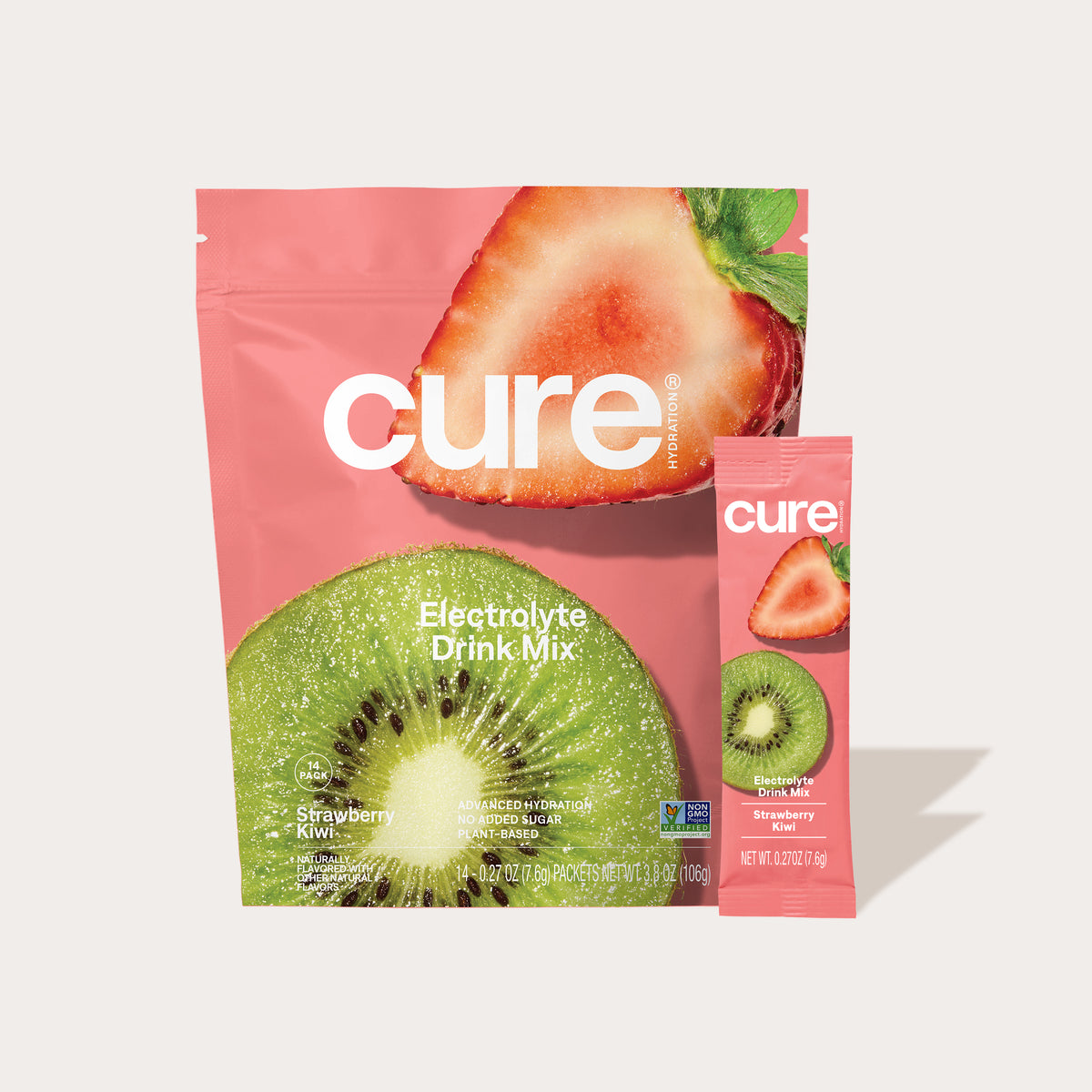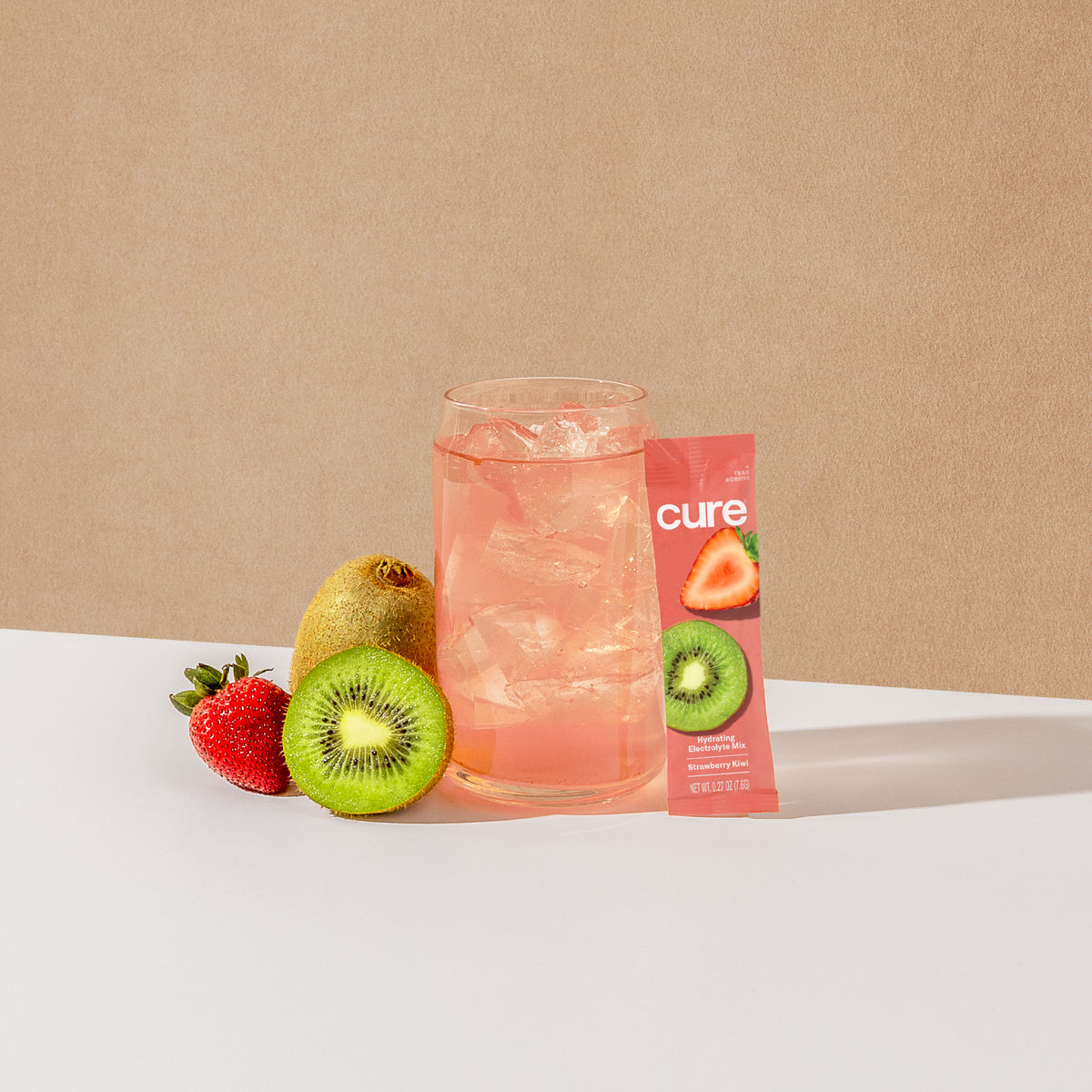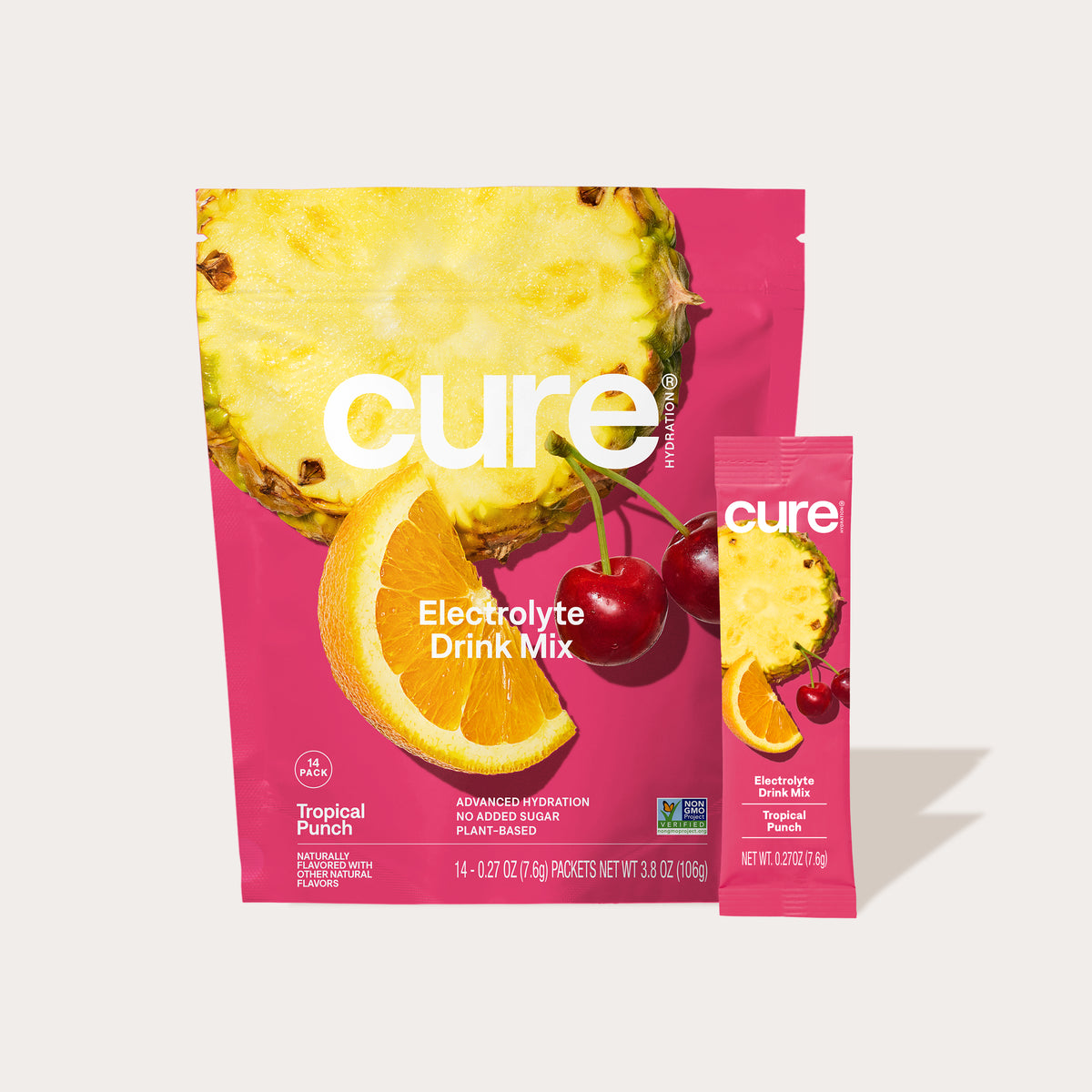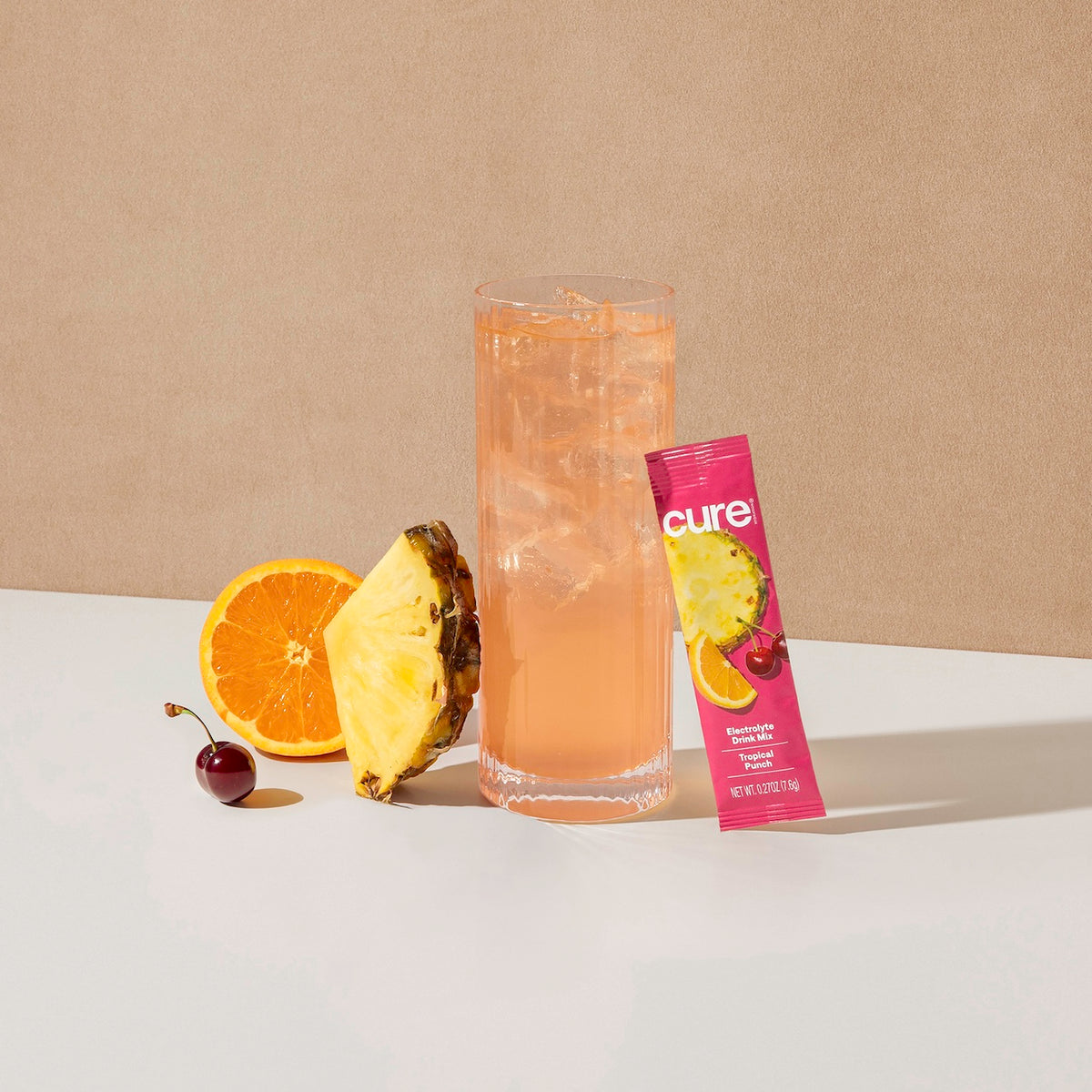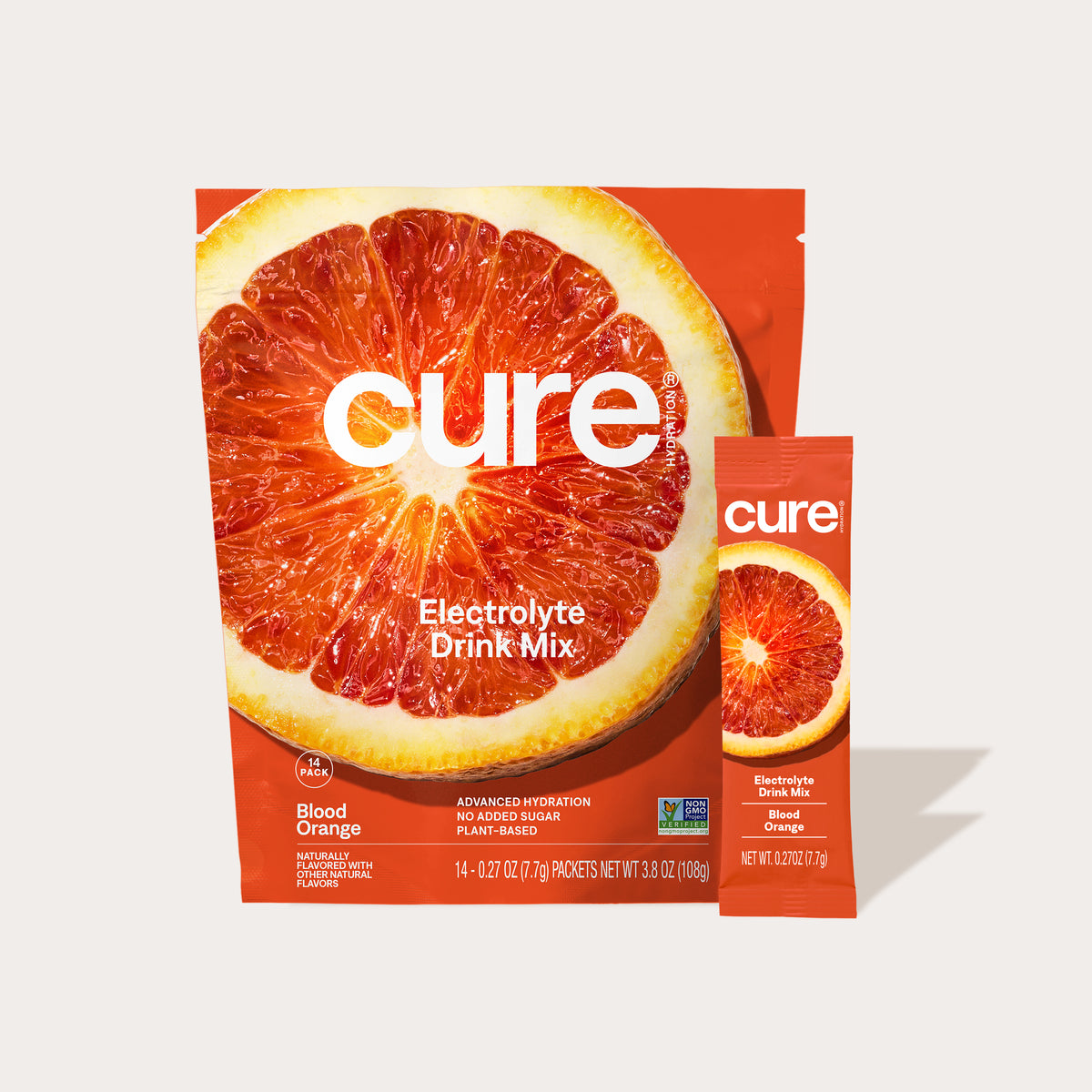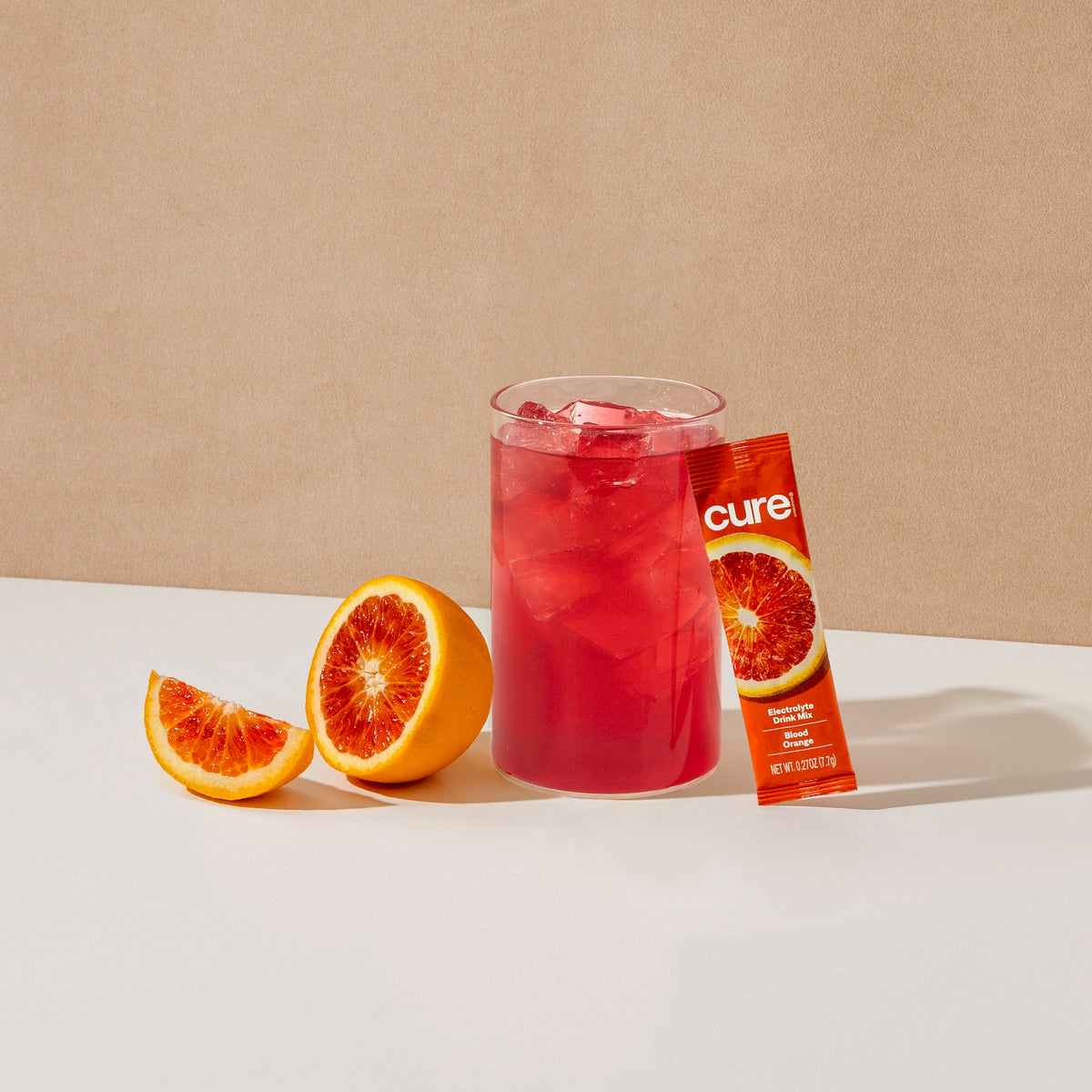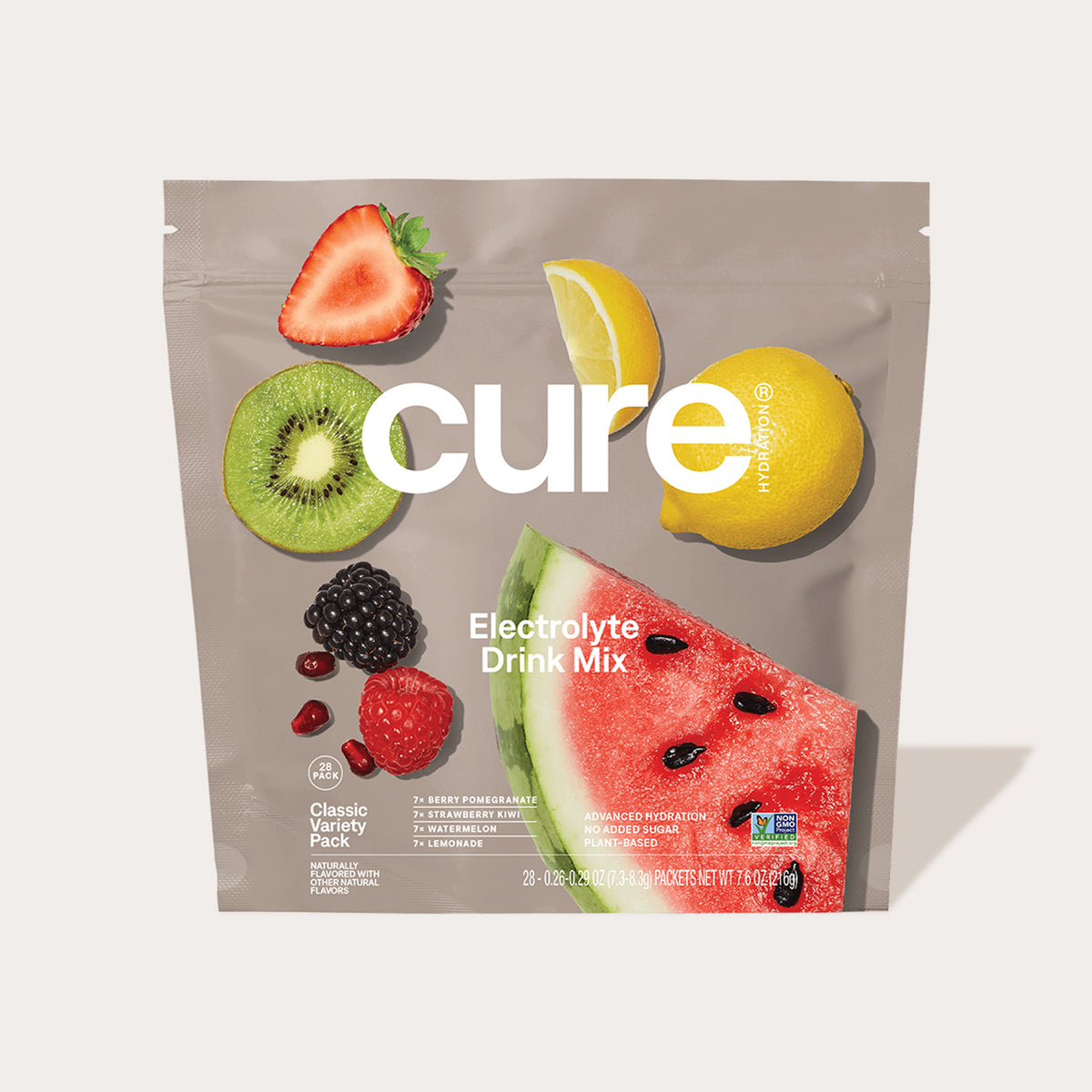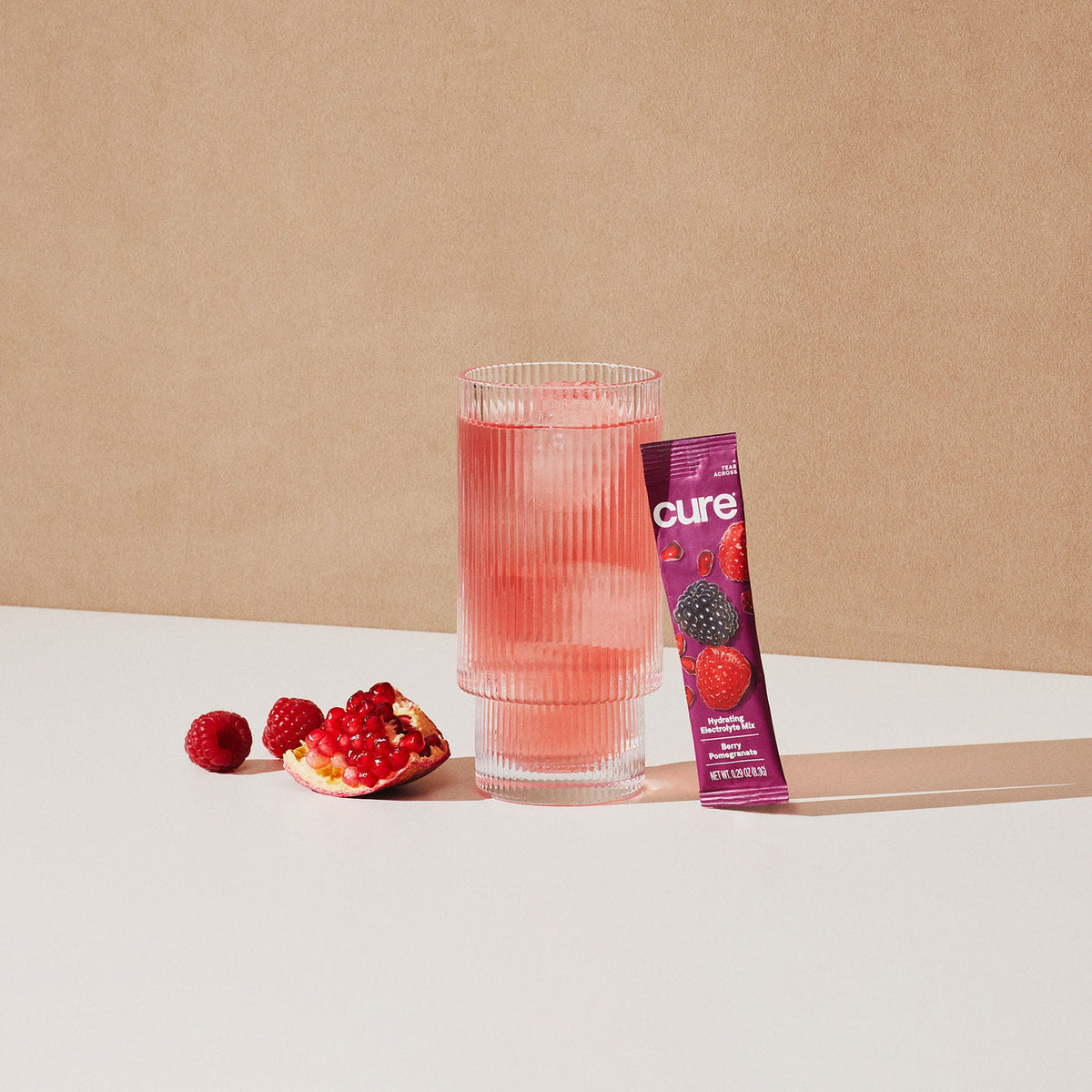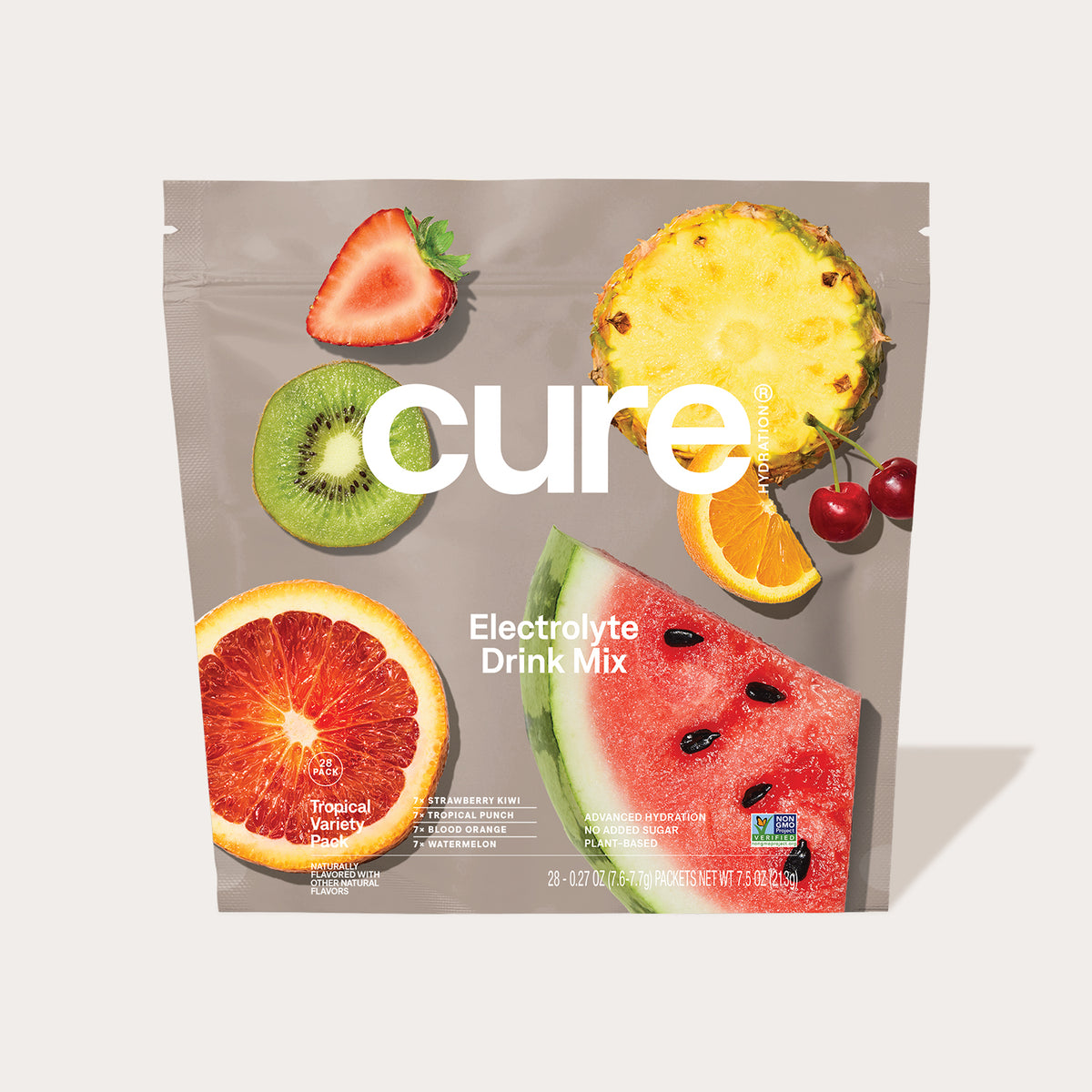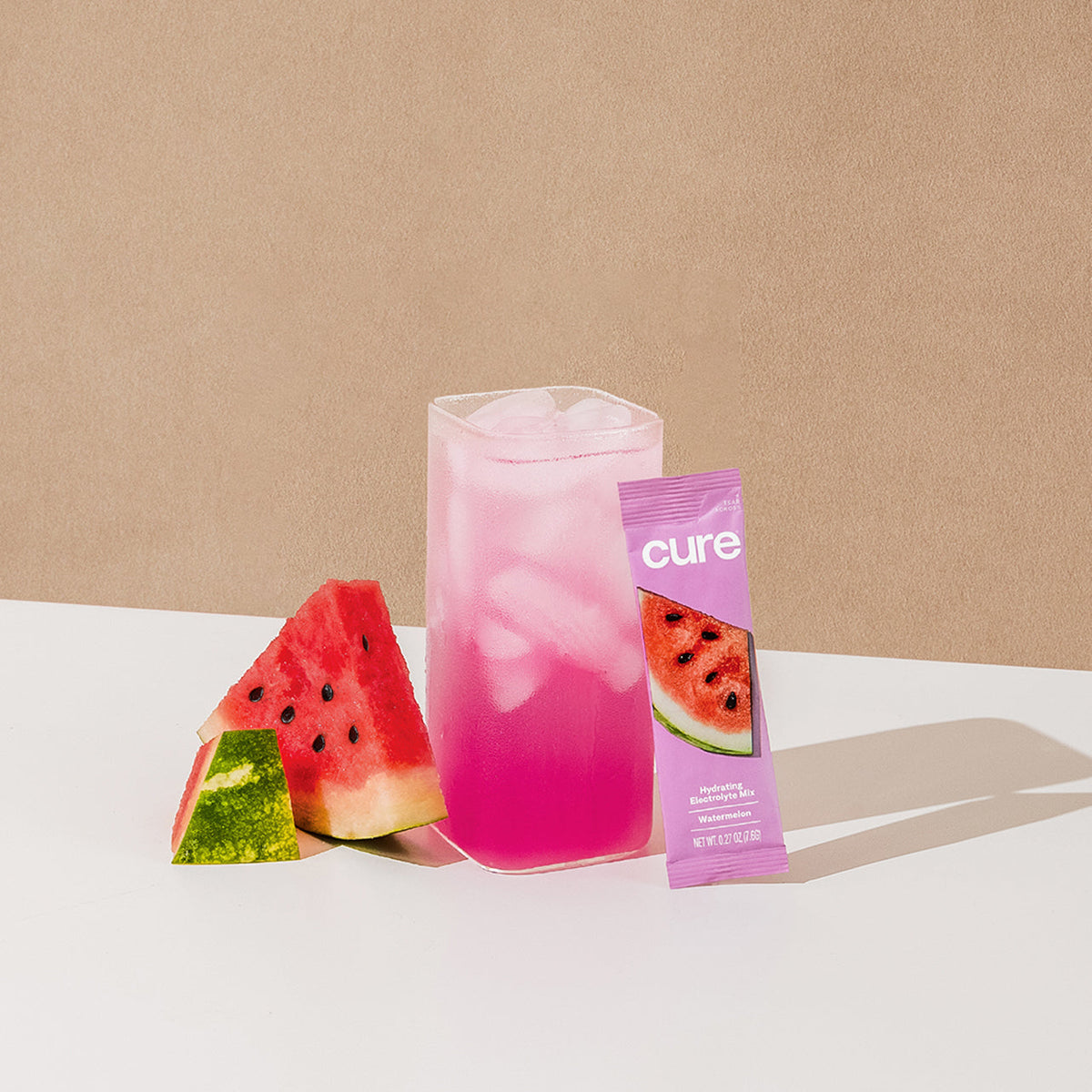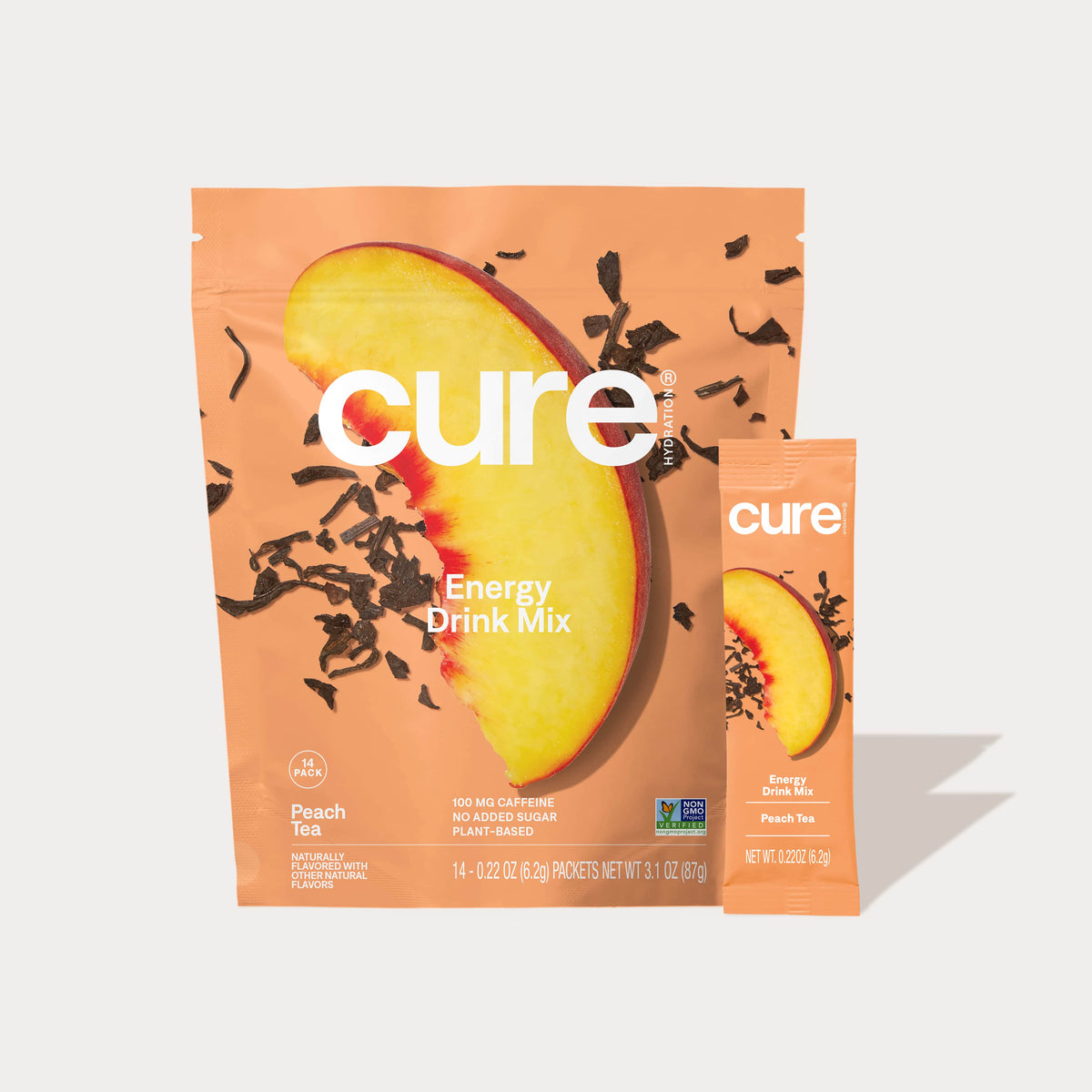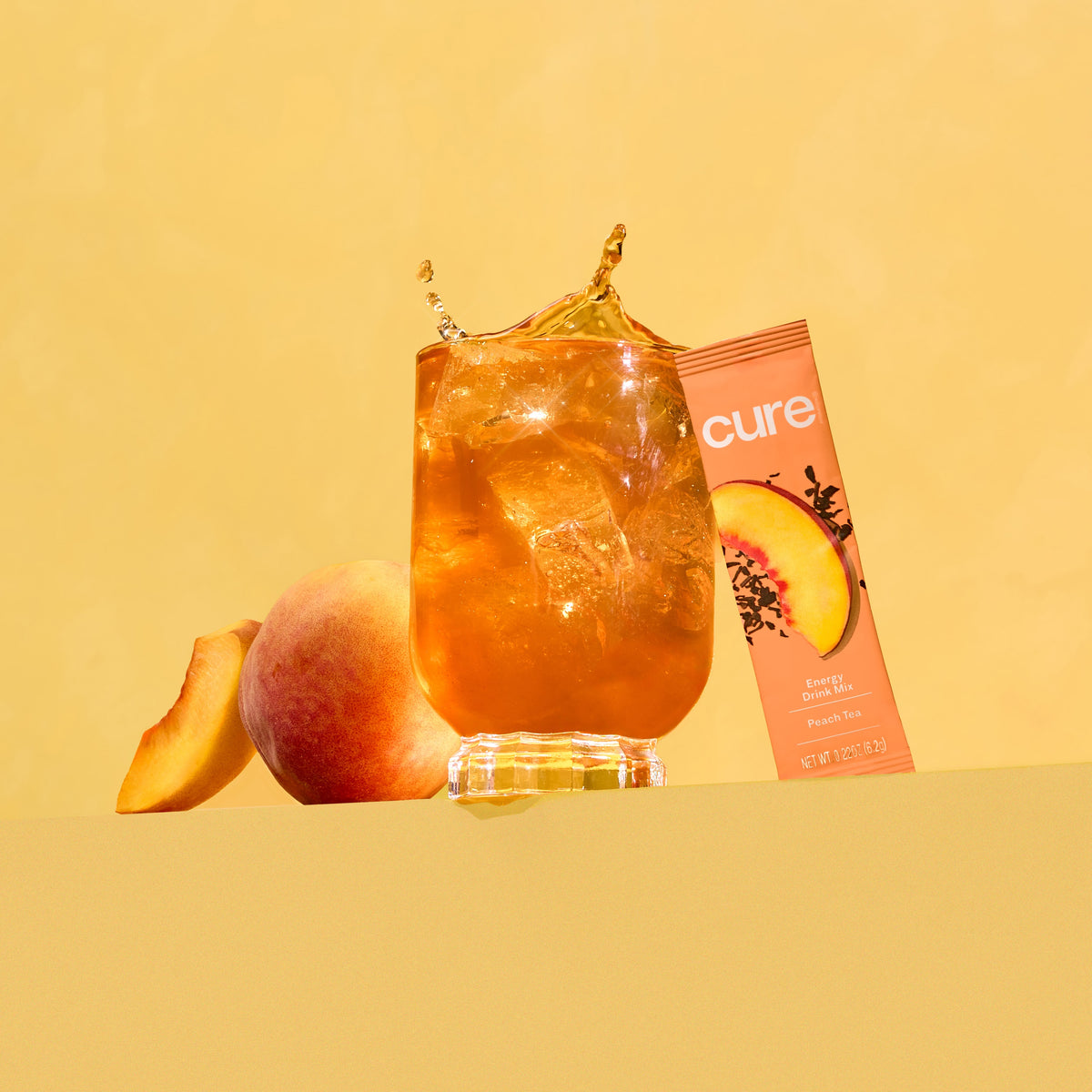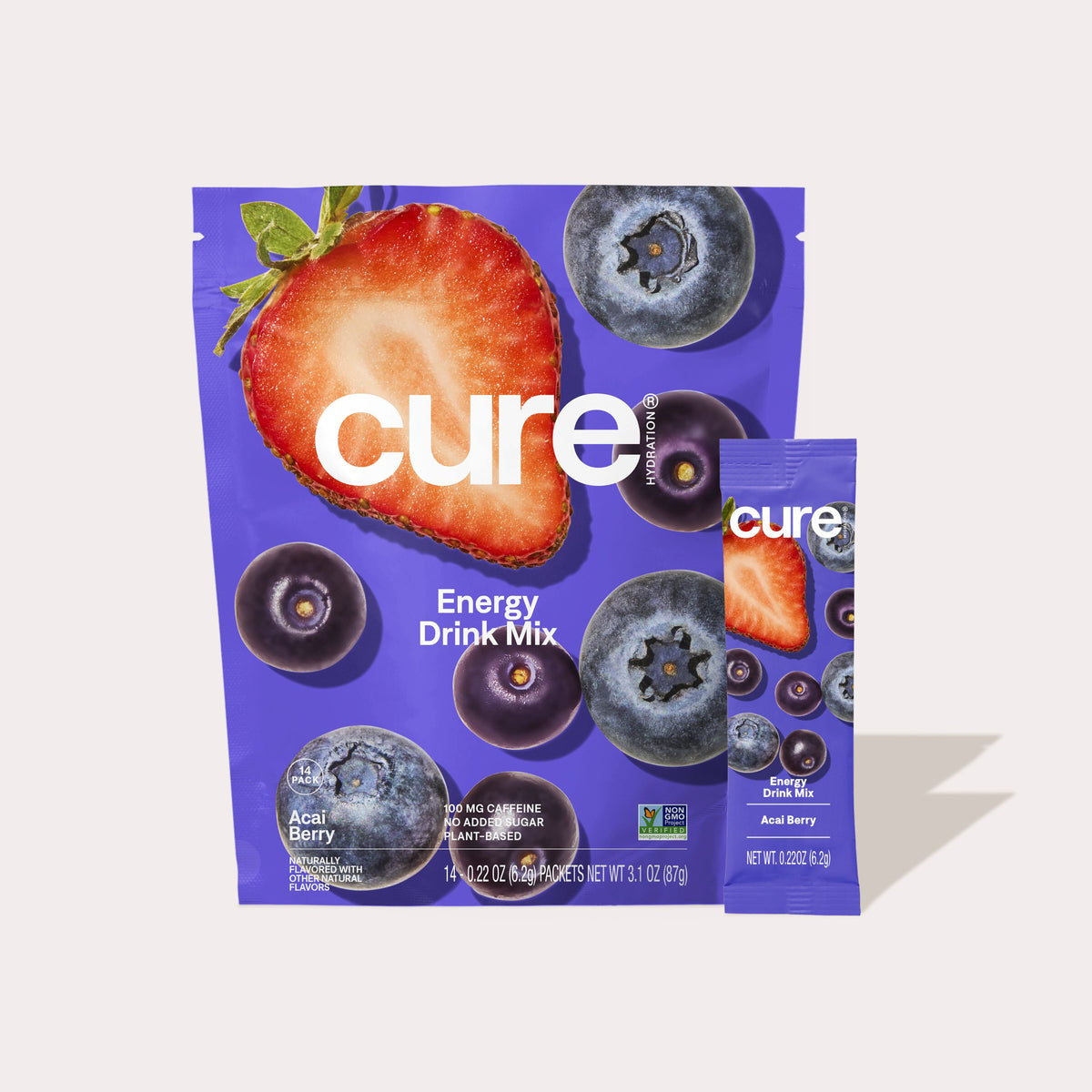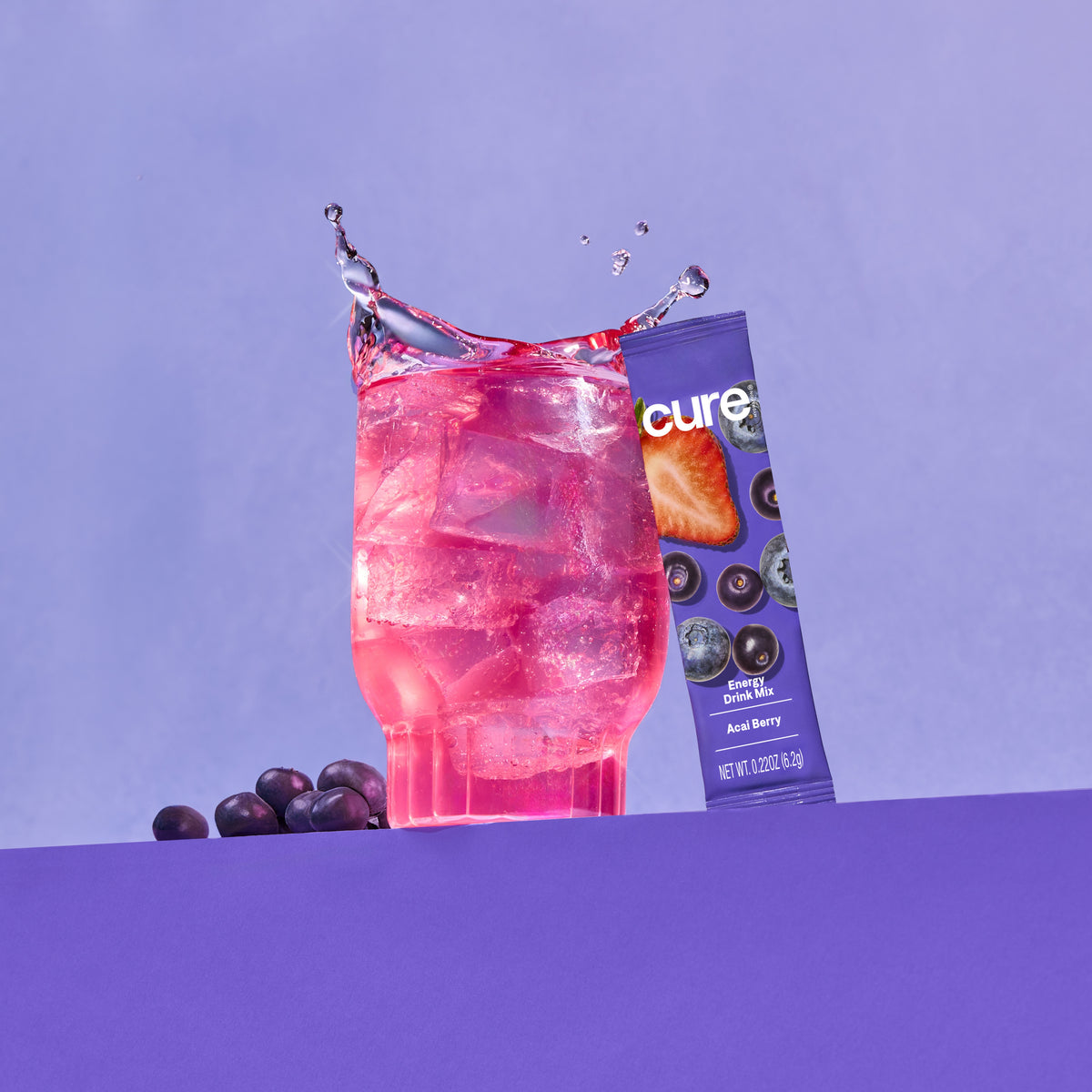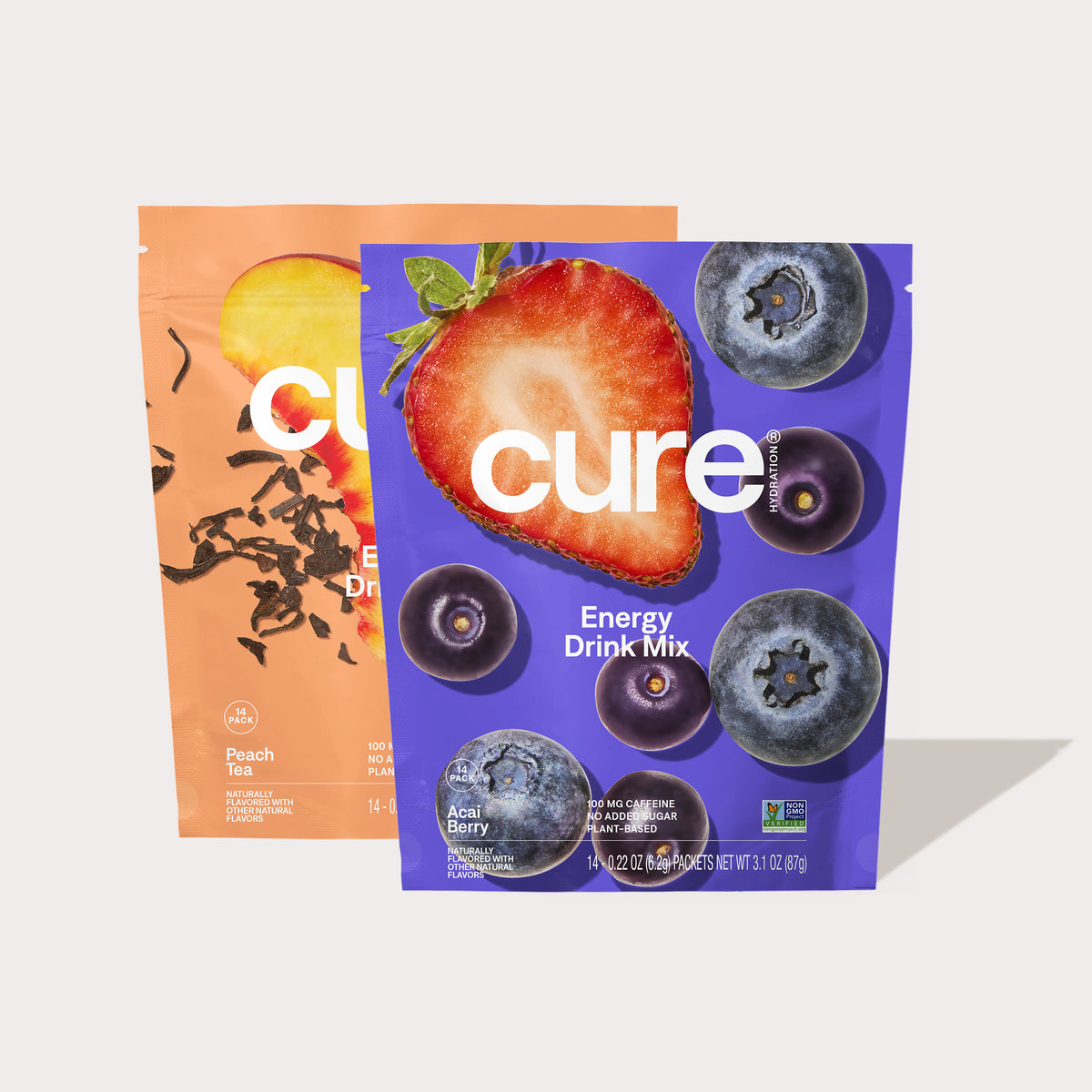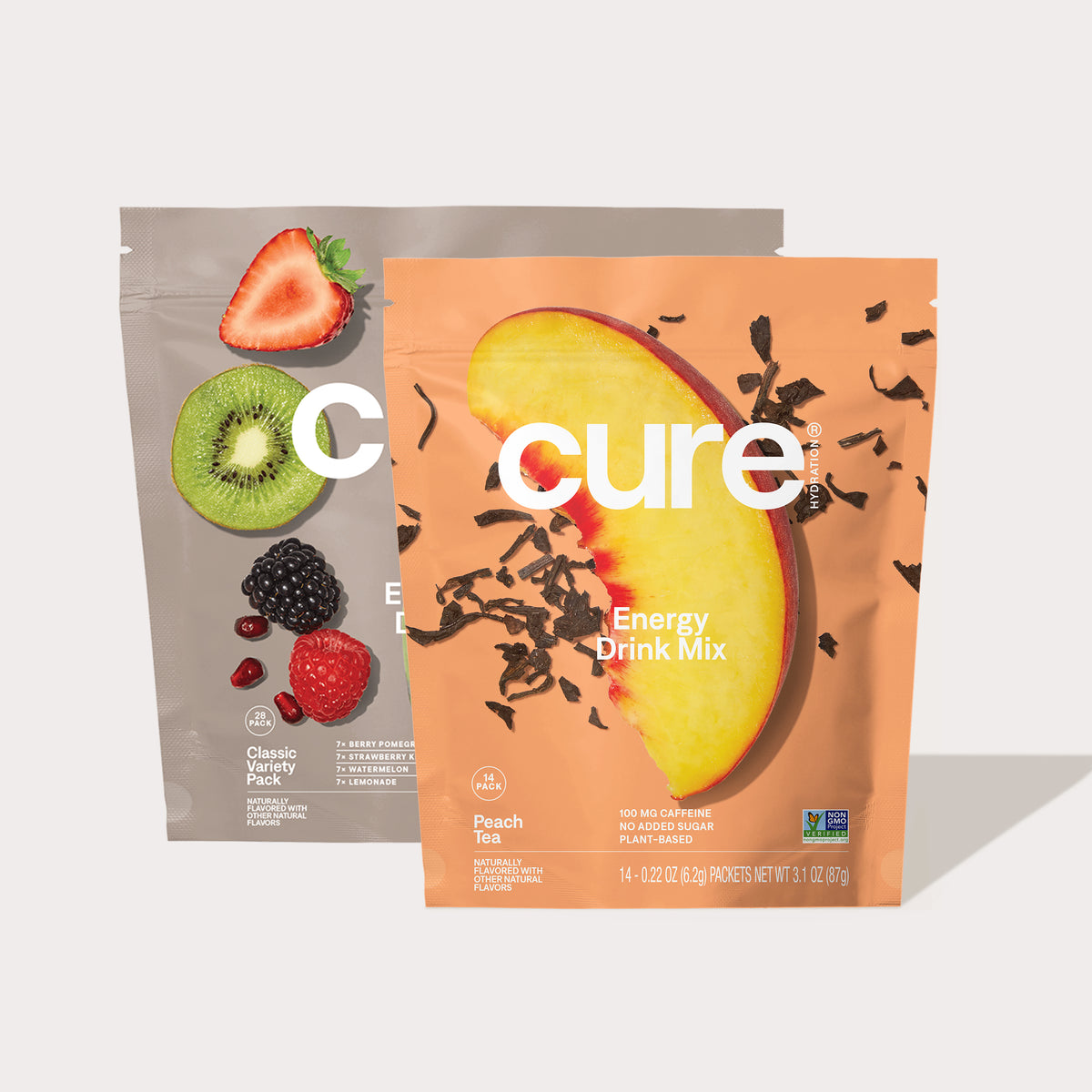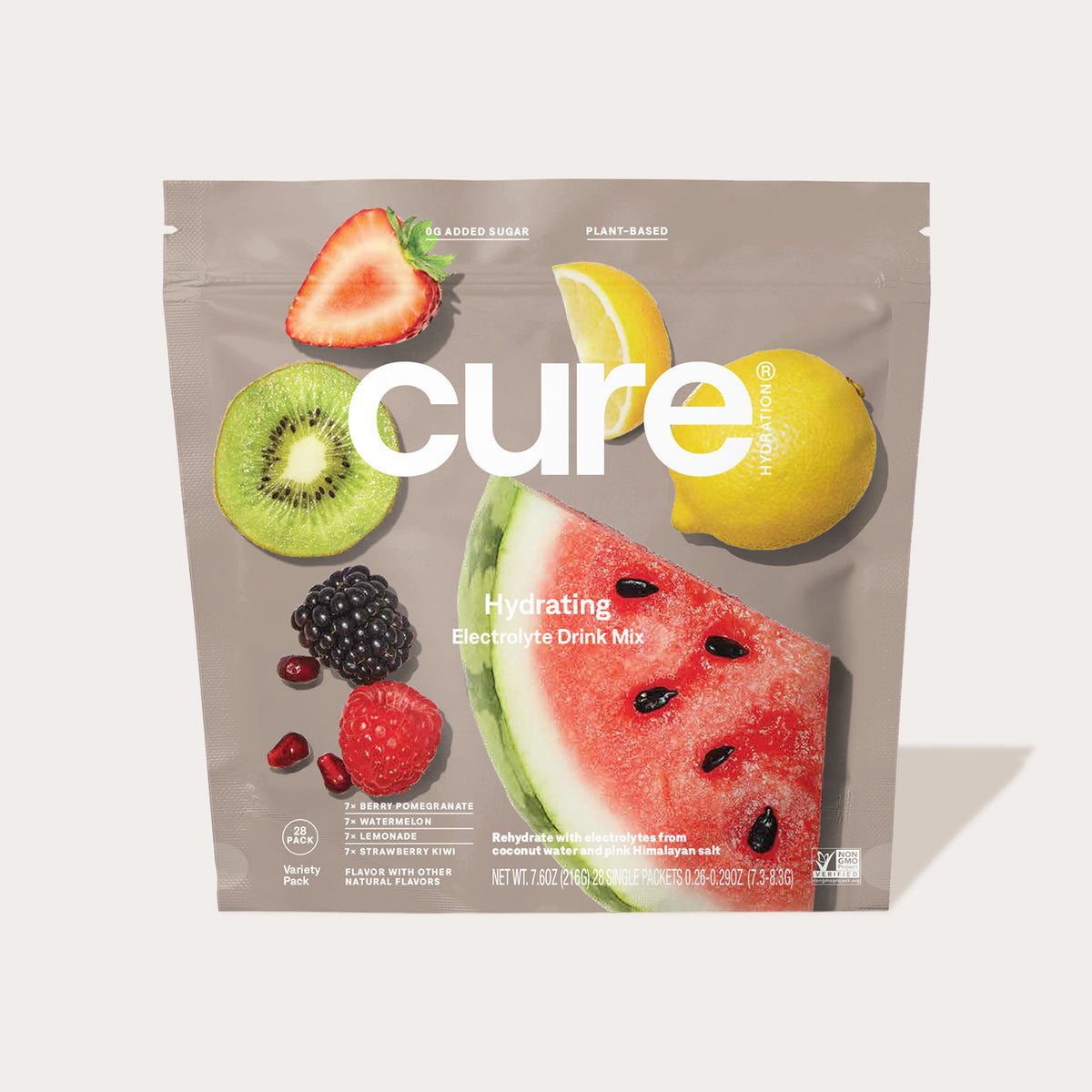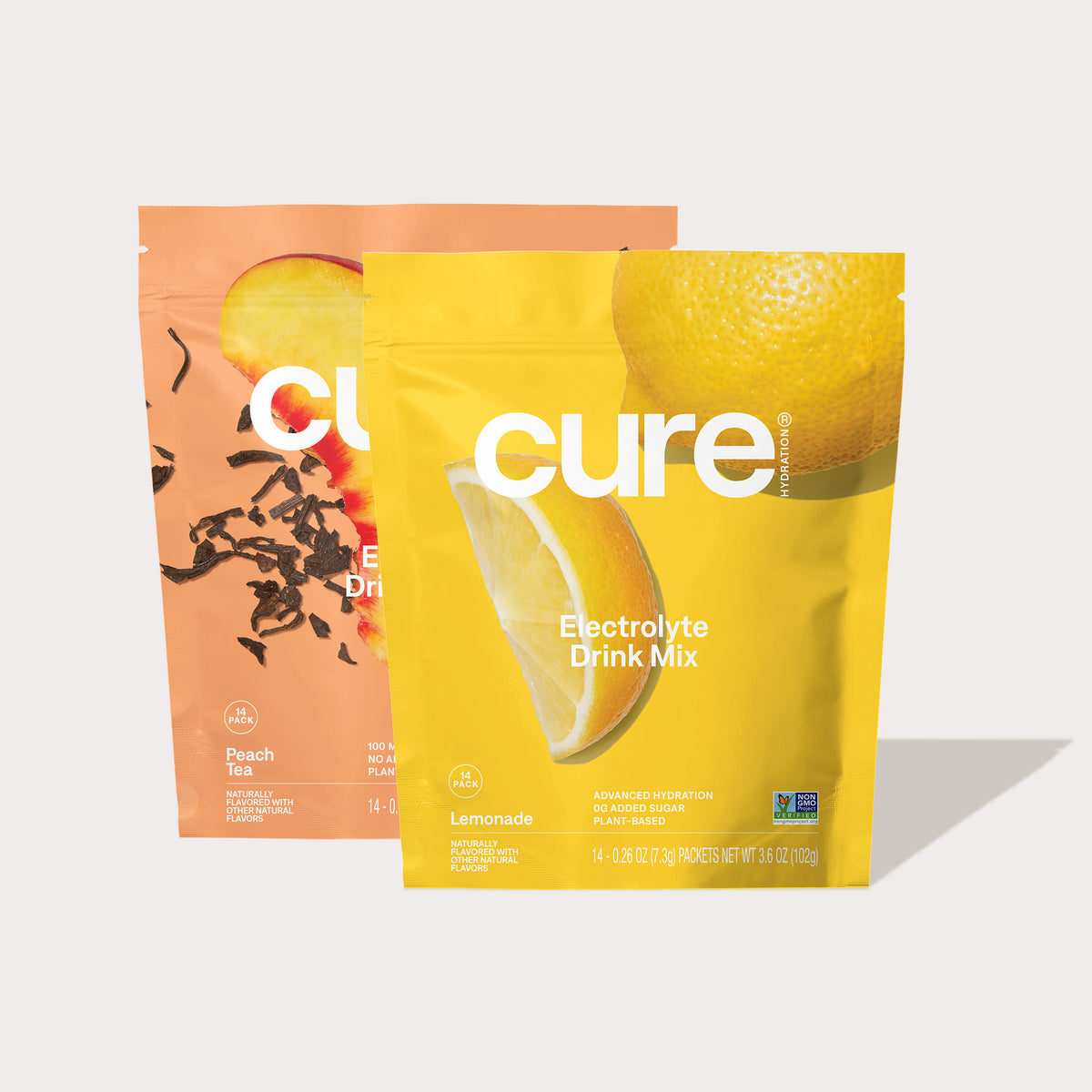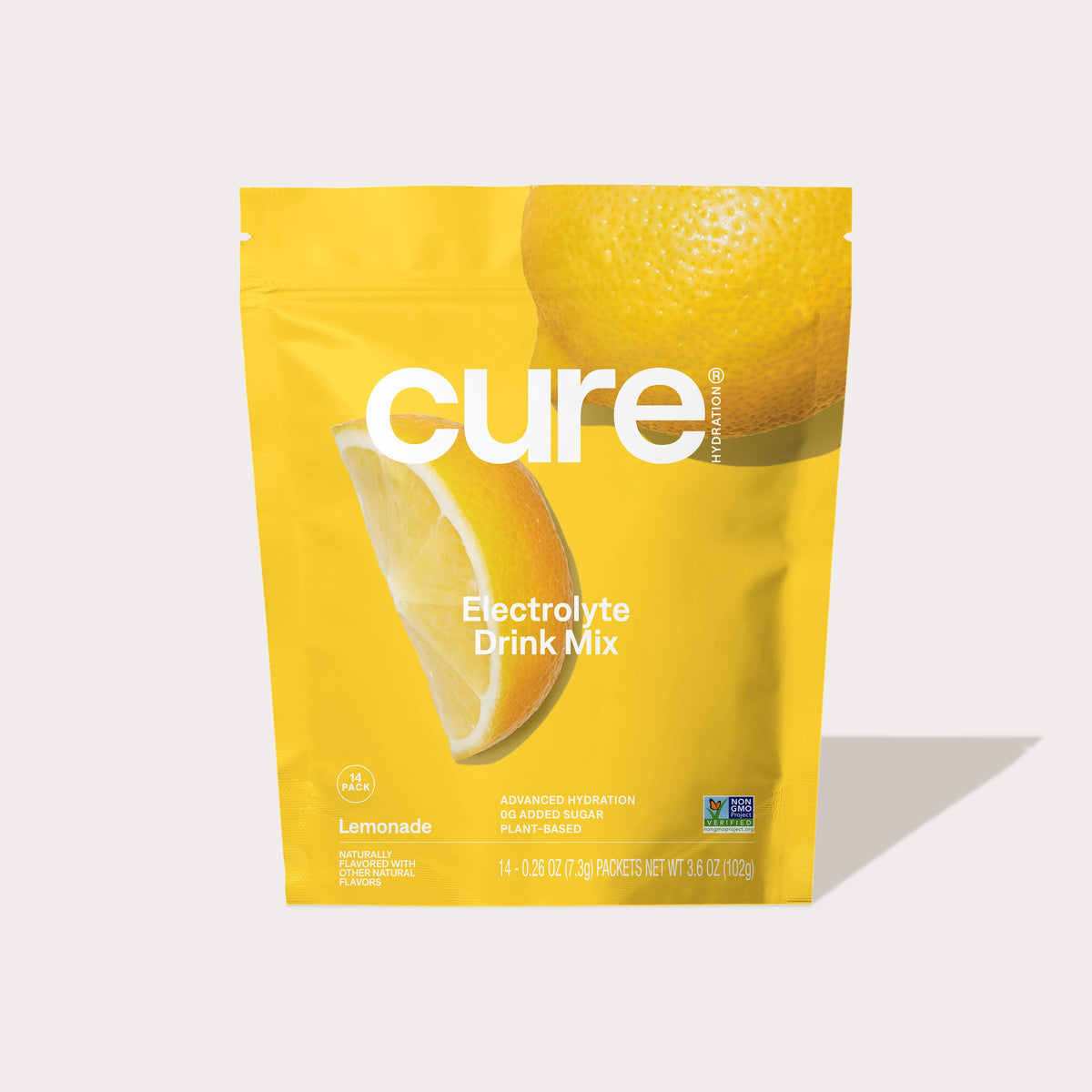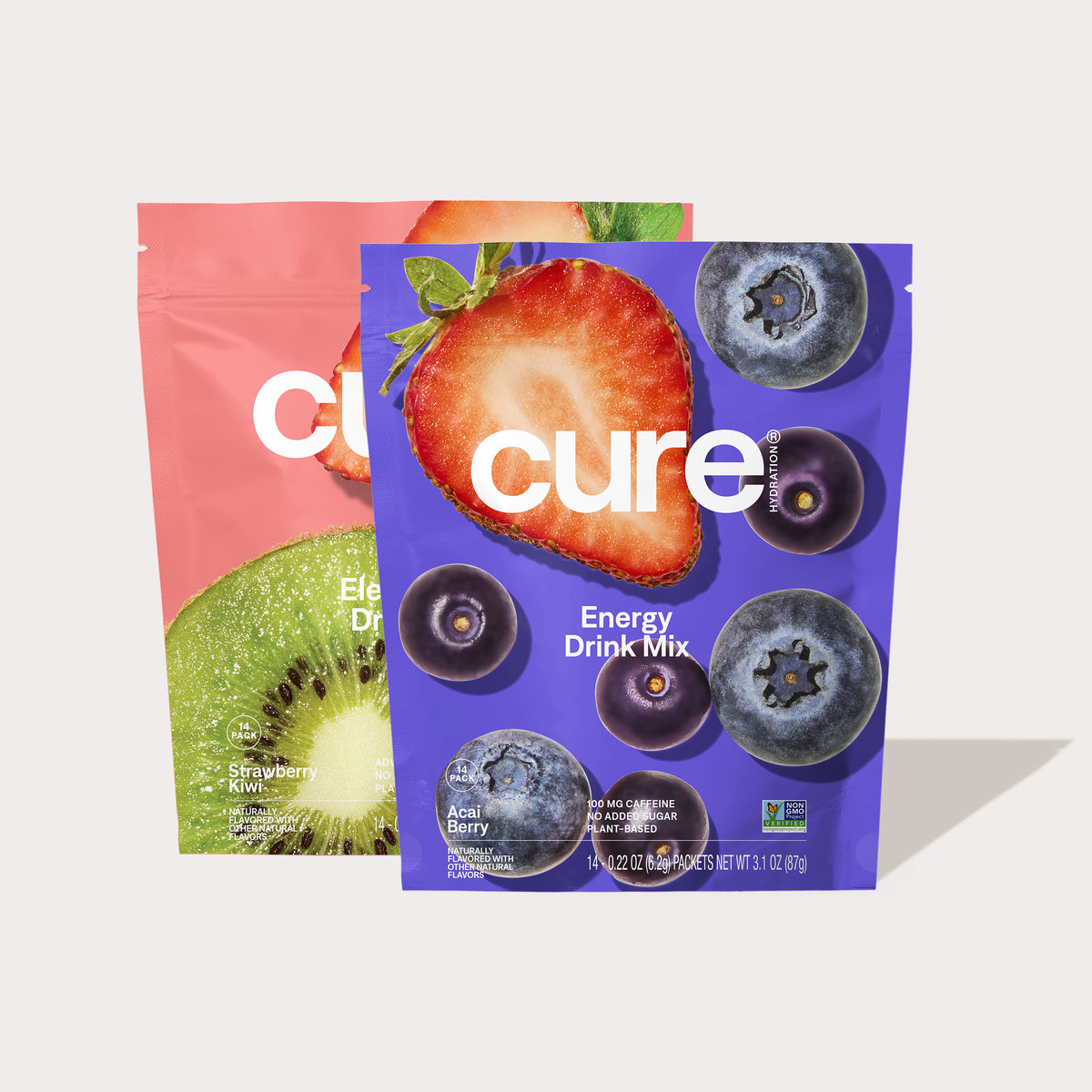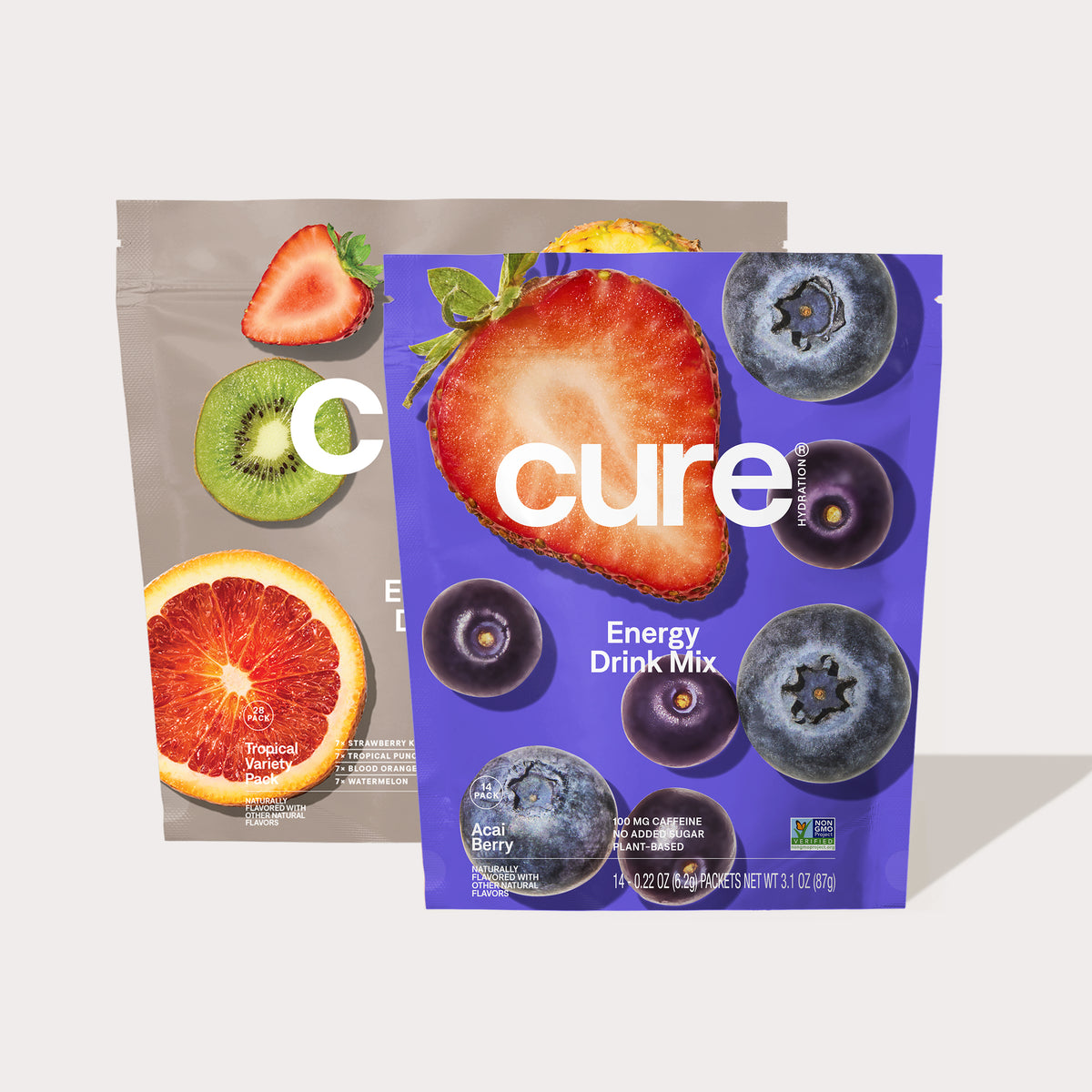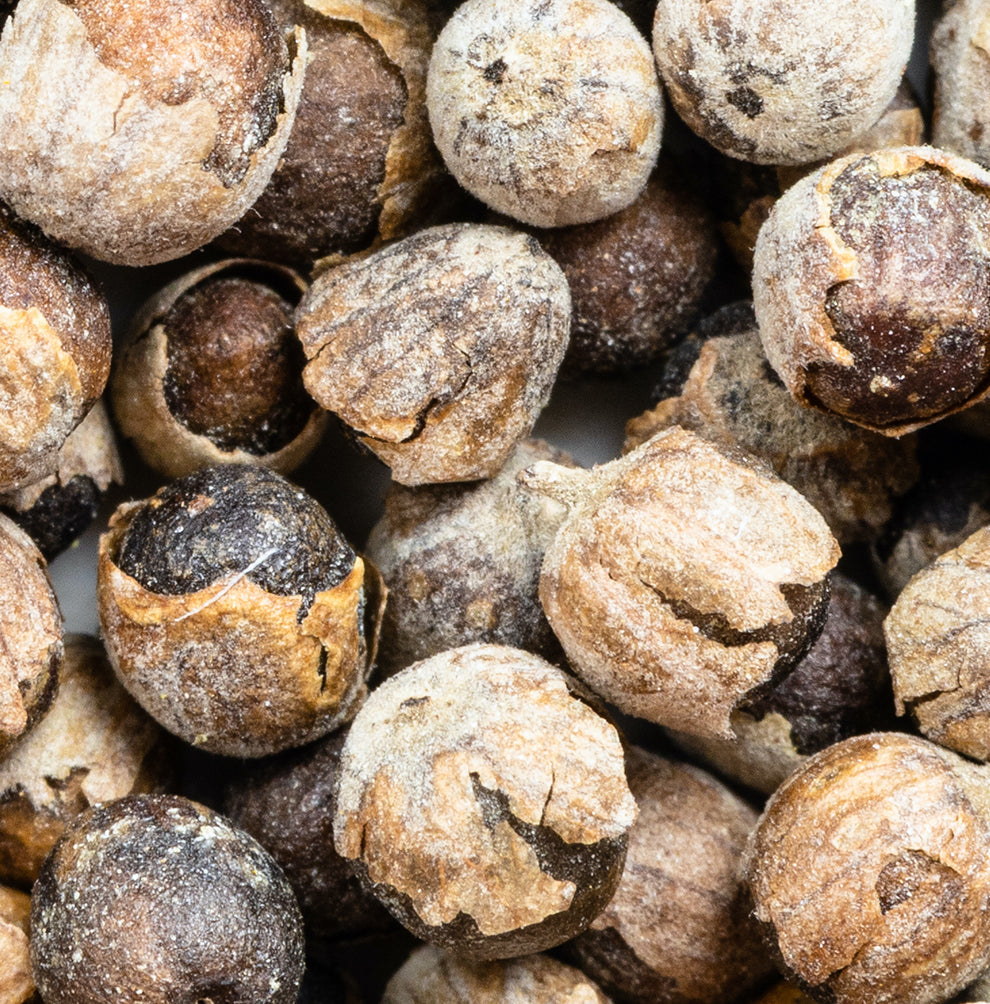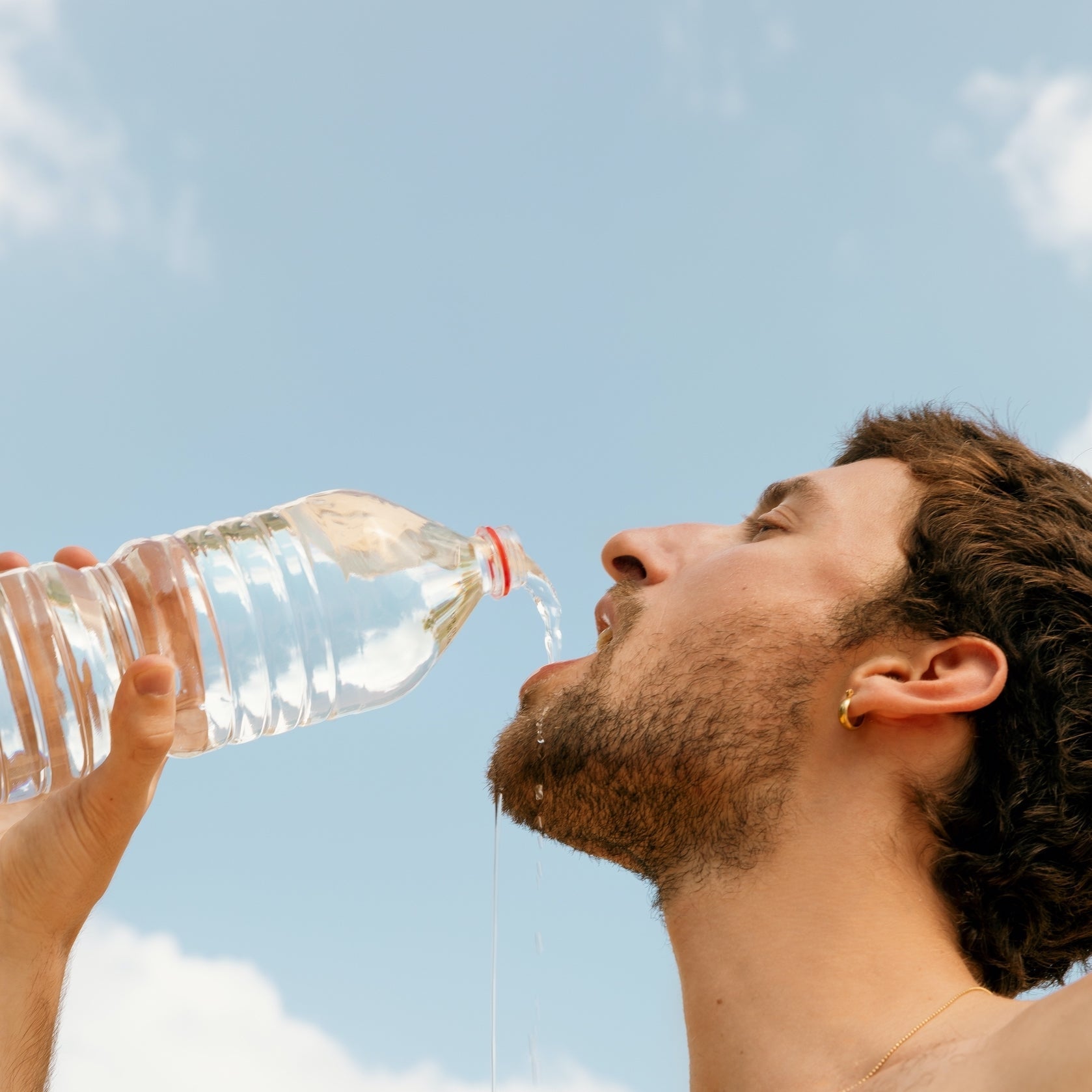In this article:
- Where Does Caffeine Come From?
- Does Caffeine Cause Dehydration?
- Then What Is Actually Causing My Dehydration?
- What Is Matcha?
- Why Can’t I Just Drink a Regular Energy Drink?

A cup of coffee is a staple in many early morning routines. So much so that the average American consumes about two cups a day. That’s because we’re craving energy boosts to get through the day. For many people, their regimen also includes other sources of caffeine like tea or energy drinks.
But you’ve probably also wondered if your daily coffee or other energy-boosting substance is causing your hydration game to slow down, especially because of the caffeine. We’ve all heard how caffeine is dehydrating, but how true is that? We’ll dive into whether or not caffeine is responsible for dehydration, but let’s go over some background information first.
Where Does Caffeine Come From?
Caffeine is classified as a stimulant. Caffeine can be found through many sources. Most commonly, caffeine is found in coffee beans, tea leaves, kola beans, and cocoa beans. Caffeine has been popular for a long time, especially since people discovered they could roast coffee beans in the 13th century. The discovery is the reason why we still love a cup of coffee or two several centuries later. People love having caffeine around so much that it can be made by humans and is known as “synthetic caffeine.”
Unless you drink your coffee black and never add any sugars or creamer, your cup of coffee probably has a lot of additives that make drinking several cups a day less than ideal. They may also be the real reason why cutting down on coffee or tea is often encouraged; it has less to do with the caffeine itself and more to do with tons of sugars and artificial ingredients. Pre-bottled coffee and tea are incredibly guilty of adding extras to make them tasty.

Does Caffeine Cause Dehydration?
If you were to only consume caffeine without any other substance, such as the water you use to make your coffee, then technically, yes, caffeine alone is dehydrating. A normal, 8-ounce cup of coffee contains around 70-140 mg of caffeine, equivalent to around 240 ml. The caffeine content in coffee can be to blame if you find yourself having to pee more often.
If you use coffee or a shot of espresso as your post-workout drink of choice, water or even sports drinks may not be enough to restore your body to where it should be.
However, despite caffeine being slightly diuretic — that’s a fancy way of saying something that makes you pee, by the way — it isn’t likely to cause dehydration in the form we frequently consume it as.
Coffee, tea, or other caffeine-centric drinks have more than enough water in them to offset the dehydrating effects of pure caffeine. If you consume too much caffeine, this would be an instance where it may have a diuretic effect on your kidneys. The additional water that can be found in coffee and tea can help balance the mild diuretic effect of caffeine.
Plus, if the average amount of coffee consumed is about two cups and you’d need to drink around six cups to reach the daily recommended amount of caffeine, we think there are bigger problems afoot. If you’re hitting the gym after only drinking coffee all day, that’s bound to cause a problem. But drinking a single cup as your caffeine intake for the day, paired with an otherwise balanced diet? Hmm. Something isn’t adding up.
Then What Is Actually Causing My Dehydration?
If your daily cup of coffee or tea isn’t causing your dehydration, what is the true reason behind the 75 percent of people experiencing dehydration right now? It is likely caused by an electrolyte imbalance or a lack of vitamins and minerals, just as important as fluid in hydration. Plenty of people have it but have no idea what is causing their woes. You could be drinking the recommended amount of water and still be dehydrated.
Electrolytes, like sodium, potassium, and calcium, are major parts of our diets. The problem is that when we sweat, pee, or simply exist, we can lose electrolytes. If we don’t replace them, it is hard for our body to regulate fluids to their proper place. That’s right -- despite drinking enough water, you could still have a problem with dehydration if you can’t maintain a proper electrolyte balance.
Dehydration can get worse during the winter months or whenever we’re sick. With winter being a prime season for illness, it makes sense that the two are linked. When you are sick, especially with nausea, vomiting, or diarrhea, you lose a lot of fluids and electrolytes. Cold weather can make detecting dehydration harder since you are less likely to sweat as noticeably as you would in warmer weather.
There’s also the possibility of having a medical condition or taking medications that can contribute to dehydration. If you are on diuretic medications such as ones for blood pressure or anti-depressants, dehydration may be more likely to happen to you.
With all of these things against us, it can be easy to give up. But thankfully, Cure was designed in response to a lack of good, hydrating energy on the market. We offer energy without the questionable extra ingredients or added sugars of other energy-boosting drinks. Our Laser-Focused energy drink mix combines ceremonial grade matcha, coconut water powder, pink Himalayan salt, and plant-based ingredients. Together, they bring you high-quality energy without the worry of strange ingredients.
Symptoms of Dehydration
If you drink caffeinated beverages like soda on a regular basis, are one of many regular coffee drinkers, or have a higher than normal caffeine consumption, you may experience some of the following symptoms of dehydration.
- Headaches
- Dark yellow and strong-smelling urine
- Dizzy or lightheaded
- Dry mouth, lips, and eyes
- Fluid loss (this can depend on the climate and the type of physical activity)
What Is Matcha?
Matcha is a gorgeous green powder that looks like something used for magic, at least we think so! If you’ve noticed that matcha and green tea often come up in the same sentence, that’s because they’re practically cousins. They both come from the same plant but are prepared differently. Matcha is made by using the entire leaf on the Camellia sinensis plant, while green tea only uses parts of the leaf. (Fun fact, it’s the same plant a lot of tea comes from!) Matcha can also be included in green tea to enhance the flavor, so if you see “Matcha Green Tea”, that isn’t unusual.
Matcha is popular for a few reasons, and not just because it looks cool. It can also help you feel good too. Check out just a fraction of what it can do:
- Has soothing effects
- It helps boost memory and focus
- Tastes delicious
- It has more nutrients than green tea because the whole leaf is used
We use pure matcha powder as one of our ingredients because we wanted the most health benefits in one place. Matcha makes the most out of what it has, and we admire that kind of spirit. With the familiar taste of green tea, matcha makes our mixes taste not only familiar but fresh.
We’ve also mastered the art of including the most and best ingredients in our products. Take the levels of L-theanine amino acids, antioxidants, and all of the other goodness in our Matcha mix. L-theanine promotes relaxation by lowering anxiety levels and promoting outstanding focus. It can also keep your blood pressure under control.
Antioxidants are an immune system’s best friend, helping your body fight off bad cells and other threats to your well-being. While it won't make you invincible, having plenty of antioxidants on your side can help keep you at your best physically and mentally. All of that comes from our simple ingredients and no other kind of intervention.
We’ve made certain we maximized the most goodness we could use in our products. We do it all while minimizing calories and unnecessary ingredients. Only five ingredients make up our Matcha mix:
- Coconut water powder
- Pink Himalayan salt
- Matcha powder
- Monk fruit extract
- Vanilla flavor extract
Compared to the average energy drink, each packet has approximately 20 calories and 55 milligrams of caffeine. As opposed to tons of added sugars, there are only 3 grams of sugar, no added sugars included. Additional nutrients are never artificially added but responsibly harvested from the planet. Plus, we reduce waste by offering our solution as a powder mix. All you need to do is grab your trusty, reusable water bottle and mix it in.
Why Can’t I Just Drink a Regular Energy Drink?
Beverages labeled as pure energy drinks or even the tiny bottles promising hours of energy may work in the short term, but as we’ve mentioned, you sacrifice quality ingredients and risk harm through other energy solutions. Artificial sweeteners, colors, and ingredients you can’t recognize should always make you run far, far away.
Summary
Even if pre-made bottled coffee and teas don’t seem like they could do as much damage as a quick solution, remember that unneeded ingredients are just that: unnecessary and disruptive to pure, happy energy. Make sure you are getting your daily fluid intake so that your hydration levels stay at an all-time high.
Trust what people have been using for centuries, backed by science, innovatively with our mixes. Give us a try by purchasing one-time packs. Then, come back and save with our subscription services so that you never miss out on the hydration or energy you need.
Sources:
Statista | Total coffee per capita consumption United States 2020

